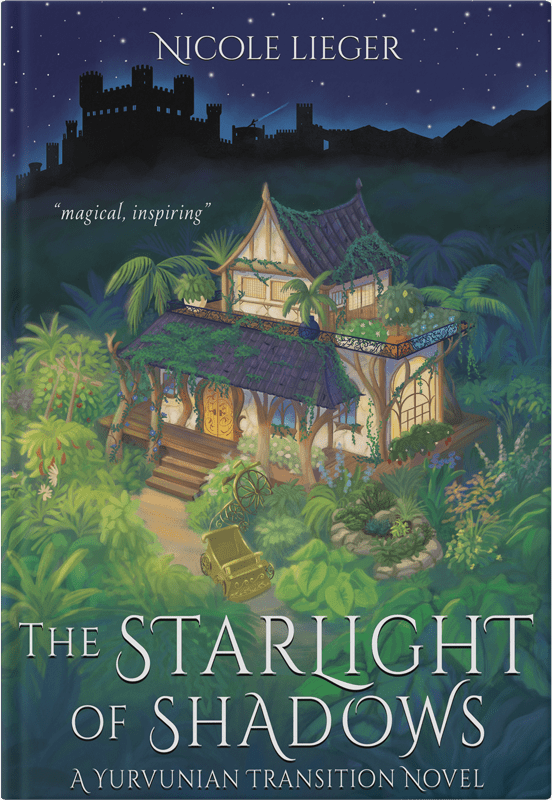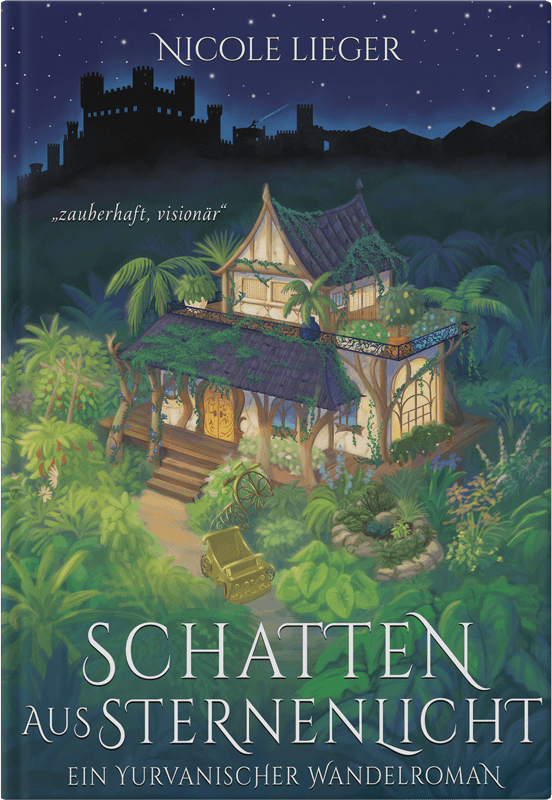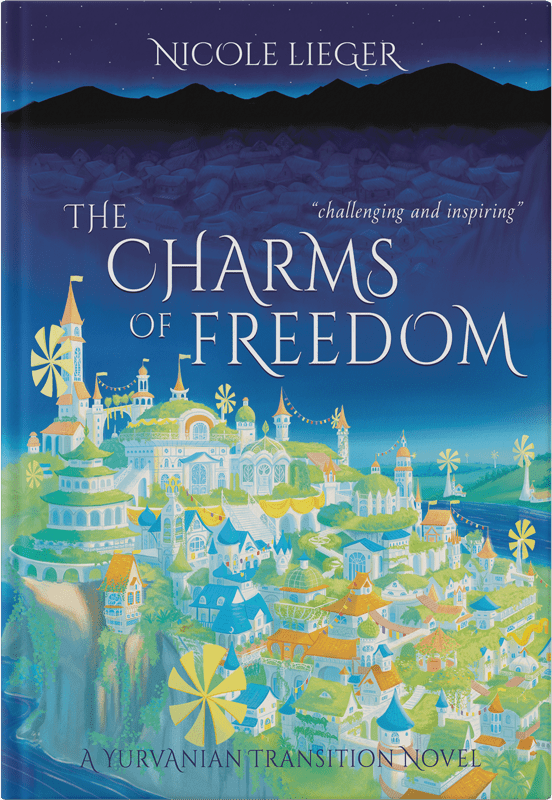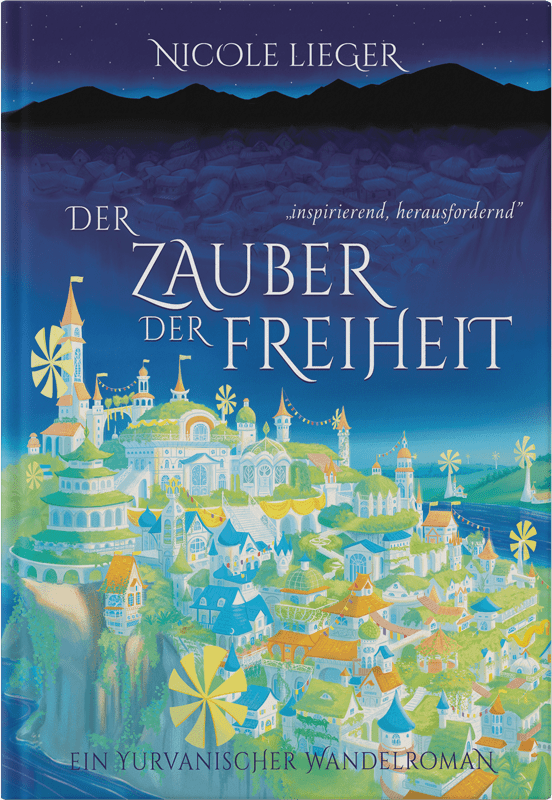Welcome to Yurvania!
A Chitchat Background Glossary
Academy of Magical Arts
Back in the olden days, before the Transition, the academy in Varoonya was the domain of traditional mages, their power inseparable from that of the ruling Feudals. But while the old mages were battling hellish demons, a few unknown commoners began forming their own secret covens, congregating in empty warehouses and private mansions. Drawing up pentacles so precise that not a grain of chalk was out of line. Exactitudes, these new magicians came to be called, and today they rule the academy.
Traditional mages were driven out on a fateful winter night, their rune-embroidered robes flapping in the storm as they fled across moonlit archways and vaulted galleries. Or so an oil painting in the academy’s library has it.
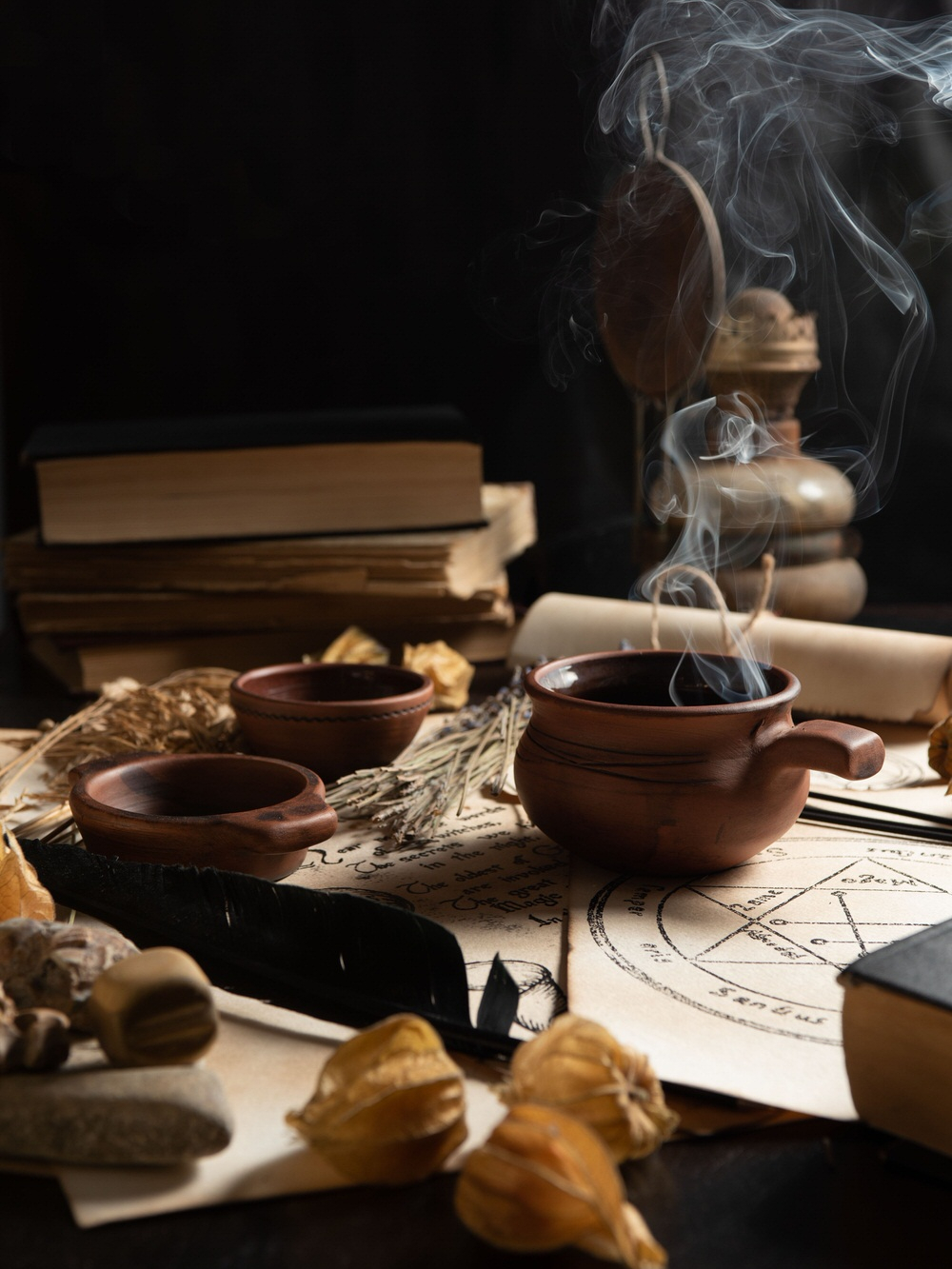

In any case, ever since the Transition, the craft of old mages and any belief in demons or fay has been decried as delusion, a vile means of manipulation and oppression. Erasing intuition, dreams and drama from the practice of magic, the Exactitudes have turned the academy into a temple of punctilious arrangement and purity of procedure.
Even though the Exactitudes have always been more concerned with being precise than with being useful, they have still ended up making huge contributions to society. They have become a major force of the Transition. They have given potions a healing power none have ever had before. And, of course, they have invented the principle of extracting vim from plants. A feat that has come back to haunt them, for it has brought about the invention of traptions, and the rise of artificers.
Artificer
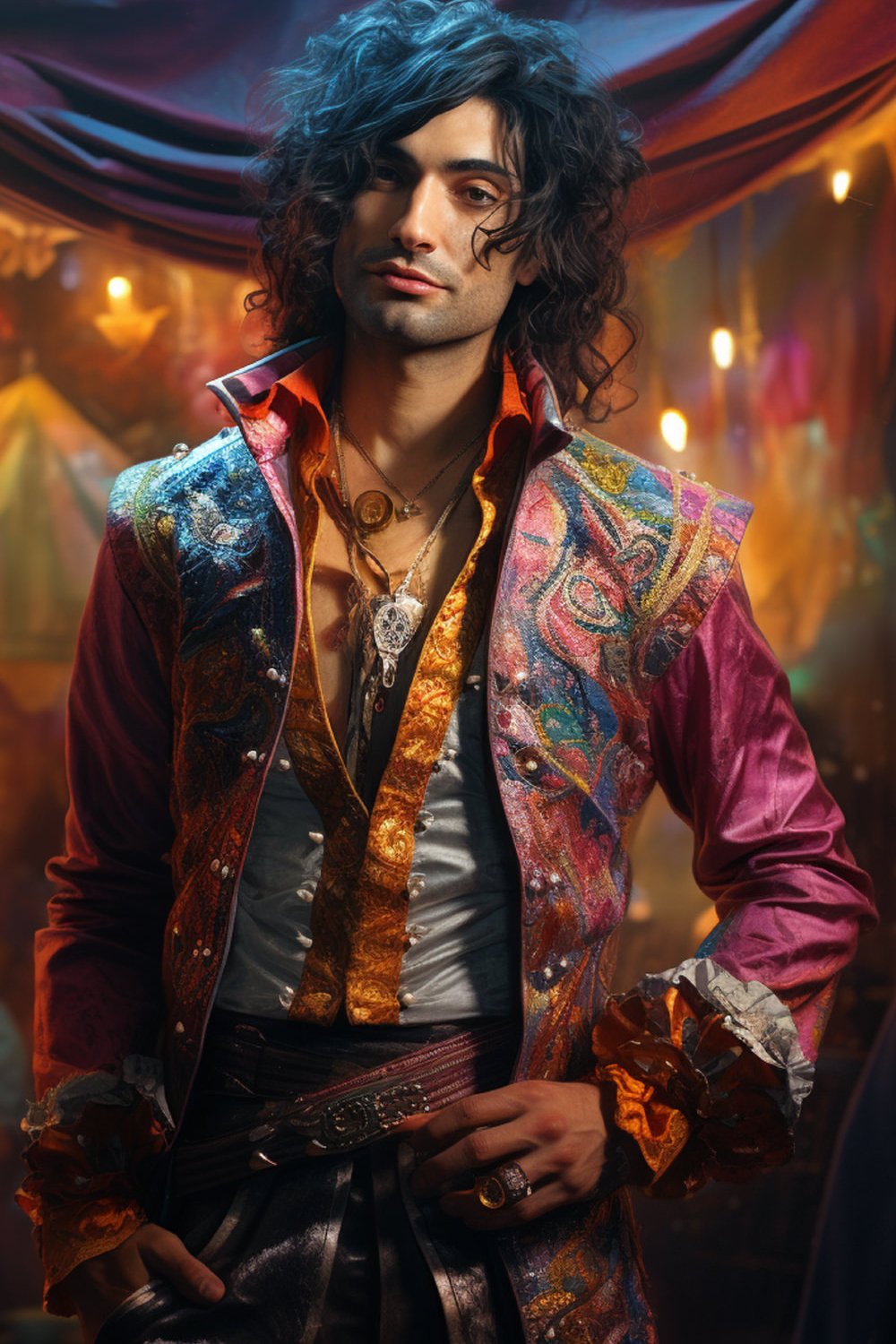
Artificers are educated at the Academy of Magical Arts. In theory, you might say. For theory is the one thing the academy does indeed teach. But the building of actual traptions, which exist only to meet everyday needs, seems to be beneath its dignity.
So anything that is hot and interesting, or indeed relevant and necessary, is best picked up elsewhere, the artificers feel. And delve into their own dens, crammed with workbenches full of glass, crystals, and a disorderly flurry of scribblings and intricate drawings. Eyes gleaming, they lean over each other’s shoulders, adding another spell here, tweaking an invisible thread there until—whoa, another traption is born! And working! Doing completely new things! Do you want to see?
They’ll show you, don’t worry. They simply can’t help it.
Behrlem
What’s not to love about Behrlem?
Anyone who says it’s a boring country town, just a petty provincial capital, probably hasn’t even been there.
Yes, Behrlem may be quiet and cozy, with lots of picturesque old houses surrounded by green fields, but it is also lively in its own way. Convivial. Full of people who can handle conflicts with neighbors, who sing any time of the day without warning, and who are keenly interested in developing their own crafts and spirits. Come visit! If you ever happen to be that far south: Go and see for yourself!

Get in Touch
Hi there! I’m happy to hear from you – whether it is about your reader’s journey,
a speaker request or just a friendly hello! Do drop me a line!
Butterfly people
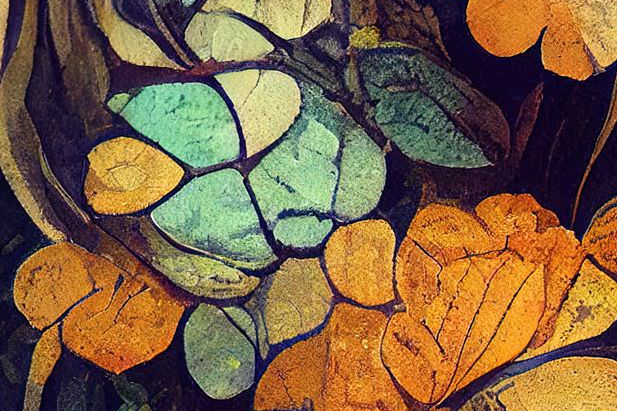
No one knows why butterfly people exist. They just happen to pop up every now and then, a big and beautiful surprise to their parents, who suddenly find themselves holding a shimmering baby of green and gold, or teal and indigo. It may be the heirloom of some long-forgotten ancestor. Or it may be the kiss of a fay. Who knows.
Butterflies are rare, and readily admired. But they have never been known for a particular skill or profession, a temperament or a walk of life. They have been people, much like everyone else. Only gifted with a velvety skin of rich, shifting hues, a body bathed in the sheen of unearthly beauty.
Canopy of Jovaden
We used to think that we were all very different, you know, Yurvania from Zonzelon, Zonzelon from Henora, and that difference inevitably meant enmity. Or that the kingdom needed to be defended. How silly. Today, we feel that naturally, people in all countries are ‘we’. We are humankind, together. And people within each country or even each town have differences among themselves.
No doubt establishing the Canopy as a formal union between the countries of Jovaden has helped a great deal with that shift in understanding. We have put an end to war, and that is what matters most.
The rest is devilish detail. Or indeed, it is precisely what you should have when responsibly navigating a complex world: endless negotiation.

Conciliators

Not everyone always gets along within a society. Sometimes bad things happen. Then what?
Ever since the Transition, Yurvania has employed conciliators in every region. Conciliators spread skills, helping people to develop their ability to listen, discern, and handle their own conflicts—the cornerstone of a competent society, according to Transition beliefs.
But conciliators also host talks directly whenever things get out of hand. Careful and experienced, the conciliators move into the conflict zone to create a space where people can feel safe enough to breathe and to begin exploring the pain in a way that does not stop at, say, the physical damage done to a home, but goes beyond to see the hurt feelings, too.
And maybe even uncovers any structural problems that may be more about the society than about the two people fighting. Bringing in whoever may be helpful from the larger community, the conciliators are there to hold space for people to find their own solution within the broad frame of the law. A conclusion that means it won’t happen again. One that repairs harm done. And one that restores relationships at least up to the point where everyone involved feels they can get on with their lives again.
Council
It’s not just that the Council is chosen by all the people of Yurvania, but otherwise it continues what the governing chamber of the Feudals used to do. No. The Council works in a completely new spirit. For the benefit of all people rather than just a few, so of course the aim is very different. But also the ways in which they go about it. Council members will not fight, pushing their own views and trying to force or manipulate everyone else along. Instead they practice deep listening, aiming to sense the emerging picture together. Like all of us, they see their own view as only one piece of a puzzle, longing to be complemented by others. And of course that is just how Council members approach the population as a whole: listening to all these different voices, trying to glean from that cacophony of partial wisdoms how it can all come together. They attune to feel into the flow of the world, to sense the emerging form of the future that longs to be.
At least that is how they are supposed to do it. I don’t know if they always make it. They are just people, after all.

Deewelarque
Quiet and reticent, their dry, angular branches full of thorny needles, the deewelarque bushes are sentinels on the threshold to the realm of fay—some people say. Those who bow in respect to these ancient natives of Yurvania. Those who believe the lush black berries can give visions of the otherworld.
Just hallucinations, other people say. But even those agree that deewelarque berries can make for extremely potent potions. Or, without the right kind of skill, for lethal poison.
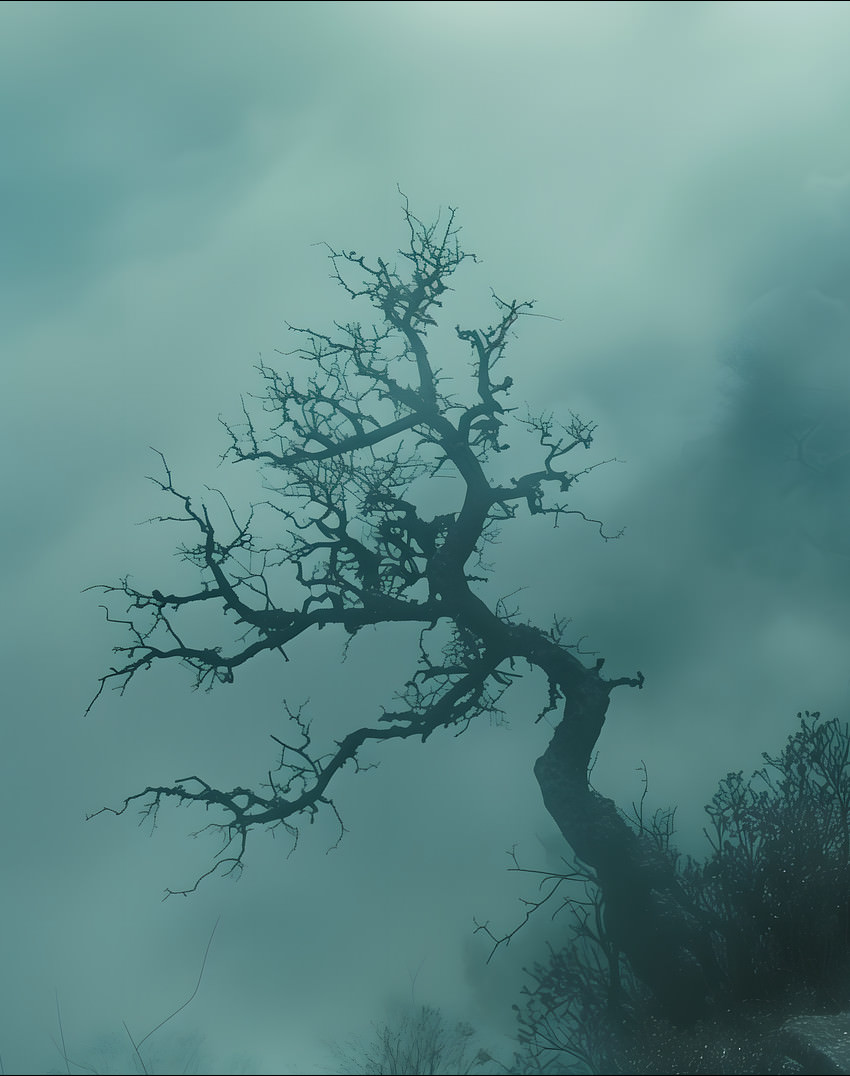
Deliberators, courts of deliberation
Sometimes, people can’t handle their own disagreements, even with the help of conciliators. If that happens, a court of deliberation will hear all sides and then come up with a final say that all parties have to abide by, even if they do not endorse it. Fortunately, most often people find a solution themselves before it gets to this.
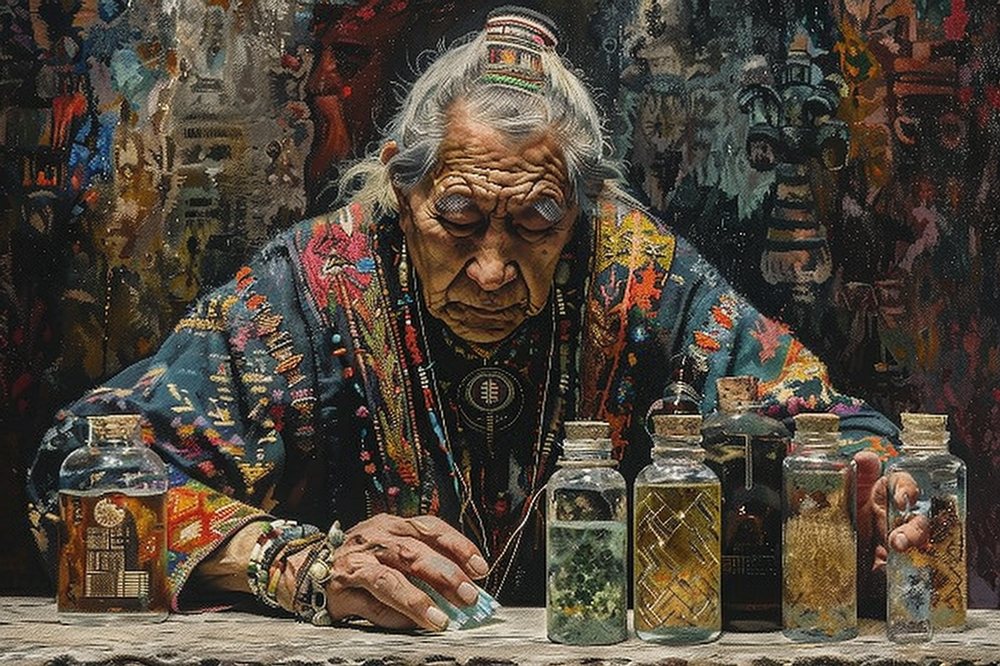
Diamondtip

Stern and warlike, its strong towers full of battlements, the ancient castle will perhaps remain forever. But the garrison and the cadet school within are dwindling and fading in the wake of the Transition. Gone are the days when Diamondtip, the greatest garrison in Yurvania, had the power to dominate the whole south. Old times will never return. Or will they?
Exactitudes
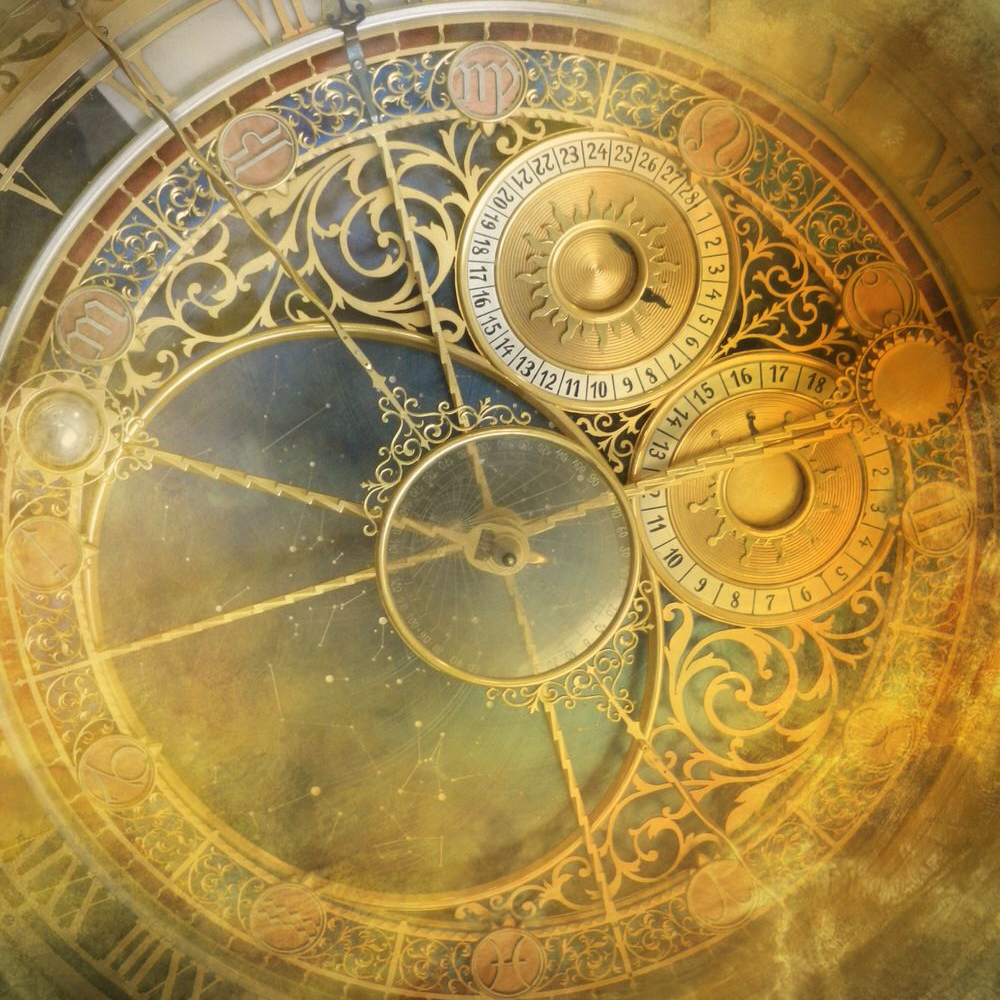
It’s funny that the old nickname is still around, isn’t it?
After all, ever since the Transition, the Exactitudes have been so dominant at the academy that they see themselves as the only kind of magician there is, or possibly could be. The Exactitudes now hold the power to define what is accepted as truth in Yurvanian society. Mostly, anyway.
So anyone who believes that the old mages did indeed banish demons, or that the fay world is real, or that traptions are the future, will be subjected to snorts and raised eyebrows at the very least. The Exactitudes have no doubt about their own truth, or their own importance.
But then again. Just to be sure, just to remind everyone that the old mages have been ousted by their betters and that artificers are just tinkerers . . . Isn’t it worthwhile to stick with the old nickname? Just to make it clear to everyone what true magic is, and who is its keeper?
Fay
Do they exist? Do they not?
In all of living memory, the people of Yurvania have taken the presence of the fay for granted. Even if no one really knew who they were. But some may have glimpsed a selkie or a wraith, and for sure everybody had seen the demons that came to do terrible battle with the mages.
But ever since the Transition, all of that is gone. We know now that those so-called demons were only illusions, conjured up to make people afraid and, once afraid, easy to hold down. Quite right the Transition ousted the mages! And any belief in demons or fay along with them.
So that is the official creed in Yurvania now, the kind of thing you are supposed to say in public.
But of course, actual beliefs within a society are always more varied than that. In Yurvania, too. Not only do we have the last of the old mages and their followers, but there also are, and probably always have been, people who hope that the fay realm may mean more than just monsters. That, perhaps, it is also home to unicorns. To nymphs and fauns and flower fairies, ghosts and spirits, mermen and shape shifters. A world rich and strange, of humans turning into trees and pearls birthing sea gods. Of stars opening portals and winds whispering to lovers. A world, eldritch and alien, wonderful and mysterious, invisible and ever distant, yet always intertwined, always one with ours.
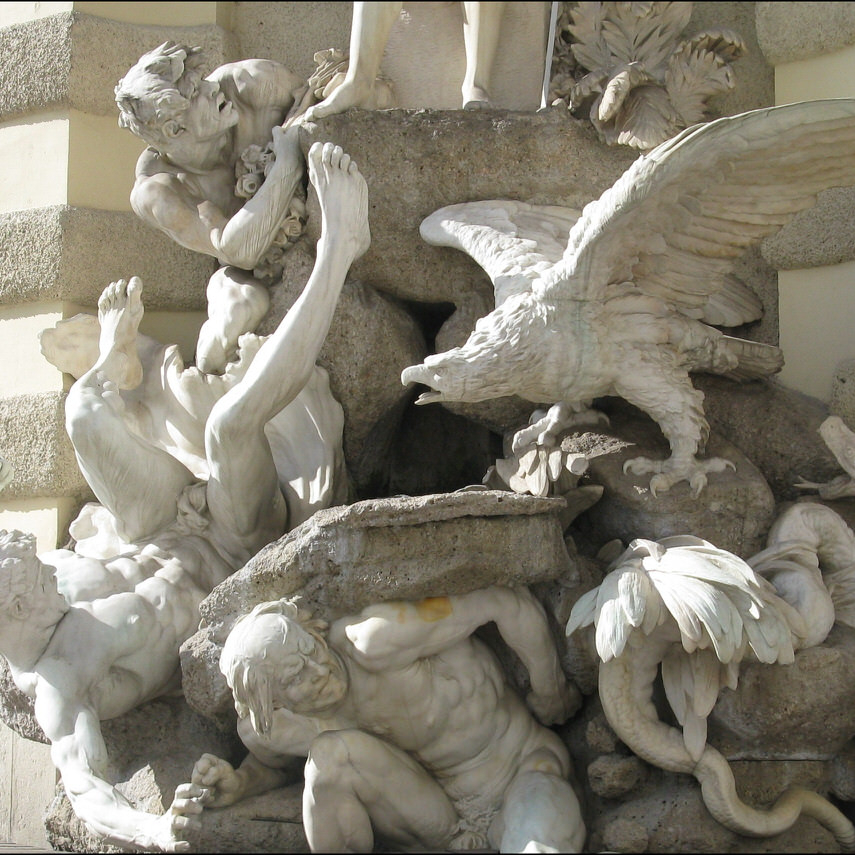
Now, those! You know them. People who claimed to own the land and even the people. Who thought that killing was honorable and killing thousands was heroic.
Yes, you may well sigh and shake your head. Be glad those days are over, and the horrors they brought, too! The Exit of the Feudals was indeed the glorious peak of the Transition, that fateful day forty years ago when the Feudals were driven into exile.
It was the dawn of a new era, and a new society. Of people living together as equals, free from oppression, ready to find a good life for all. No one today is ducking under another’s command. No one would flaunt their riches while the babies are starving.
And yet. The reign of Feudals has lasted so long, gone in so deep. It has nestled into the nooks and crannies of our culture, made its home in our souls. The traces are still there, even in our dreams. And we can only ease them out slowly, one by one . . .
Hebenir
You could say that Hebenir is on the edge of the world, even though it is not that far away, just two days’ ride from Toan after all, and two hours from Behrlem. But it is the last village that huddles into the steep slope on this side on the mountains. Behind it, only a narrow path winds up to the pass, and leads on into an unknown realm of vast, ancient highlands.

Jovaden

That’s the world.
All right: It’s our continent.
Well, all the parts of the continent that really matter, you might say. The broad and beautiful basin of the Roon River, holding Yurvania, Zonzelon, and all the other countries now united under the Canopy.
It is our home. And our horizon, too, I have to admit.
Beyond that, there be dragons . . .
Although within the Canopy of Jovaden, Yurvania still gets more glimpses of the outside world than most, I wager. Even if few have ever wondered what might lie beyond those steep mountains to the east. But a few local boatspeople are able to navigate the way south, where the Roon turns into a delta of endless swamps and mangrove forests before meeting the sea. They come back with stories of large ships and ocean waves, with silky cloth and strange artifacts, and most importantly, with thoughts and seeds.
Who knows what flowers those will grow into, and how they will change our lands?
Kokish
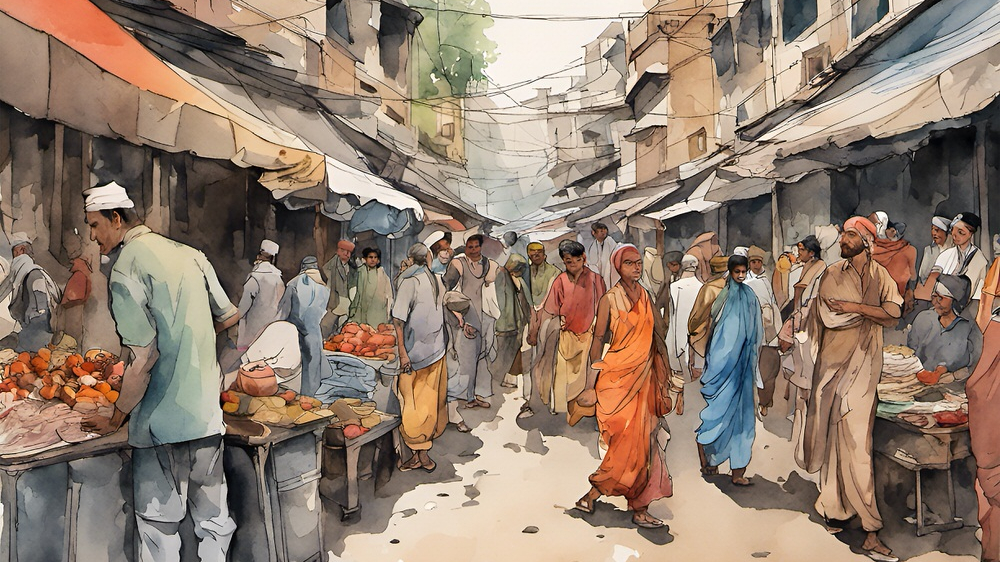
You mean the language, right? It has been brought in by the Kokish people. Even though I have heard that they also got it from elsewhere, those eternal traders. Anyway, Kokish turned into the language of merchants and a bridge between all the regional tongues. Together with the Kokish commitment to peace and to learning it became the medium of a new philosophy too, a new way of being in the world. And eventually the Transition has adopted it as its own, so that for the last forty years everyone here has grown up speaking Kokish, and old tongues like Vanian are slowly fading away.
Mage
Since times immemorial, monsters and demons have haunted Yurvania, and mages were their masters. In thunderous battles that made the sky tremble, mages shackled dragon-winged fiends and struck lightening into their fiery hearts.
But the mages fell.
Not to the demons, but to the Transition, which ousted them together with the ruling Feudals. Having served faithfully for so long, many mages were not ready to give up the power of sword and staff. Which is why the Transitioners sent them into exile, to live under guard, just like the Feudals. All those who remained were driven out of palace and academy in disgrace. They found themselves facing a new society, one that believes demons do not even exist. And that all monsters were illusions, conjured up only to scare people into submission.
Some old mages have adapted.
Some appear to have adapted, but go on practicing their craft in obscurity.
And some have formed secret covens, initiating new apprentices, forging alliances. Preparing for the day to come, when old times will be great again!
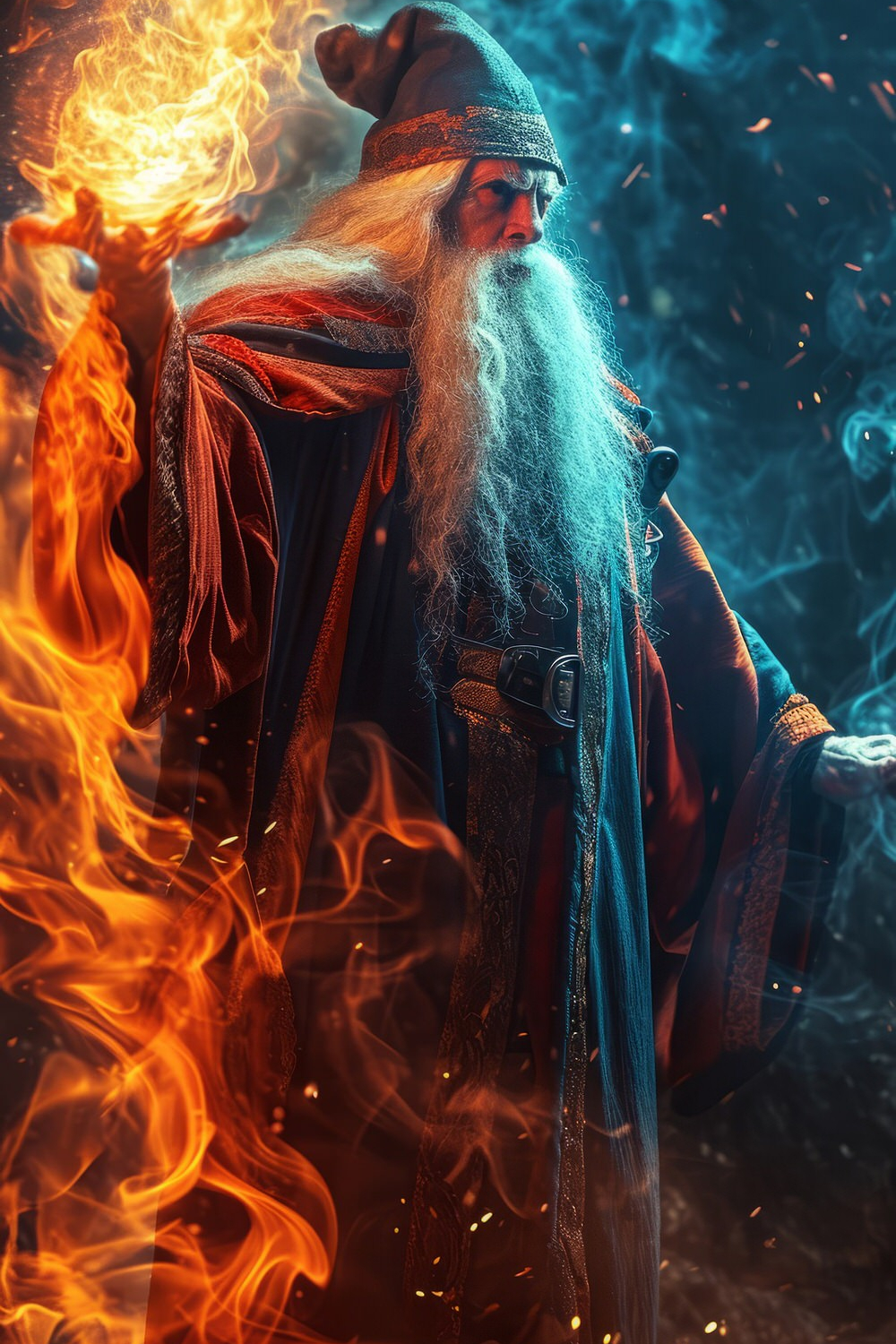
Moonwolf
A fay being that Lahoon dreamed up for his song.

Nightling
You’ve never heard anything more enchanting than the faint song of a nightling, her pure glass bell chime, while her black outline circles beneath the stars. A nightling will seem like the first bird to you, like the eternal dragon, and take your breath away with her air of quiet freedom. But when trapped, of course, she turns into a nightmare.

Recoursors
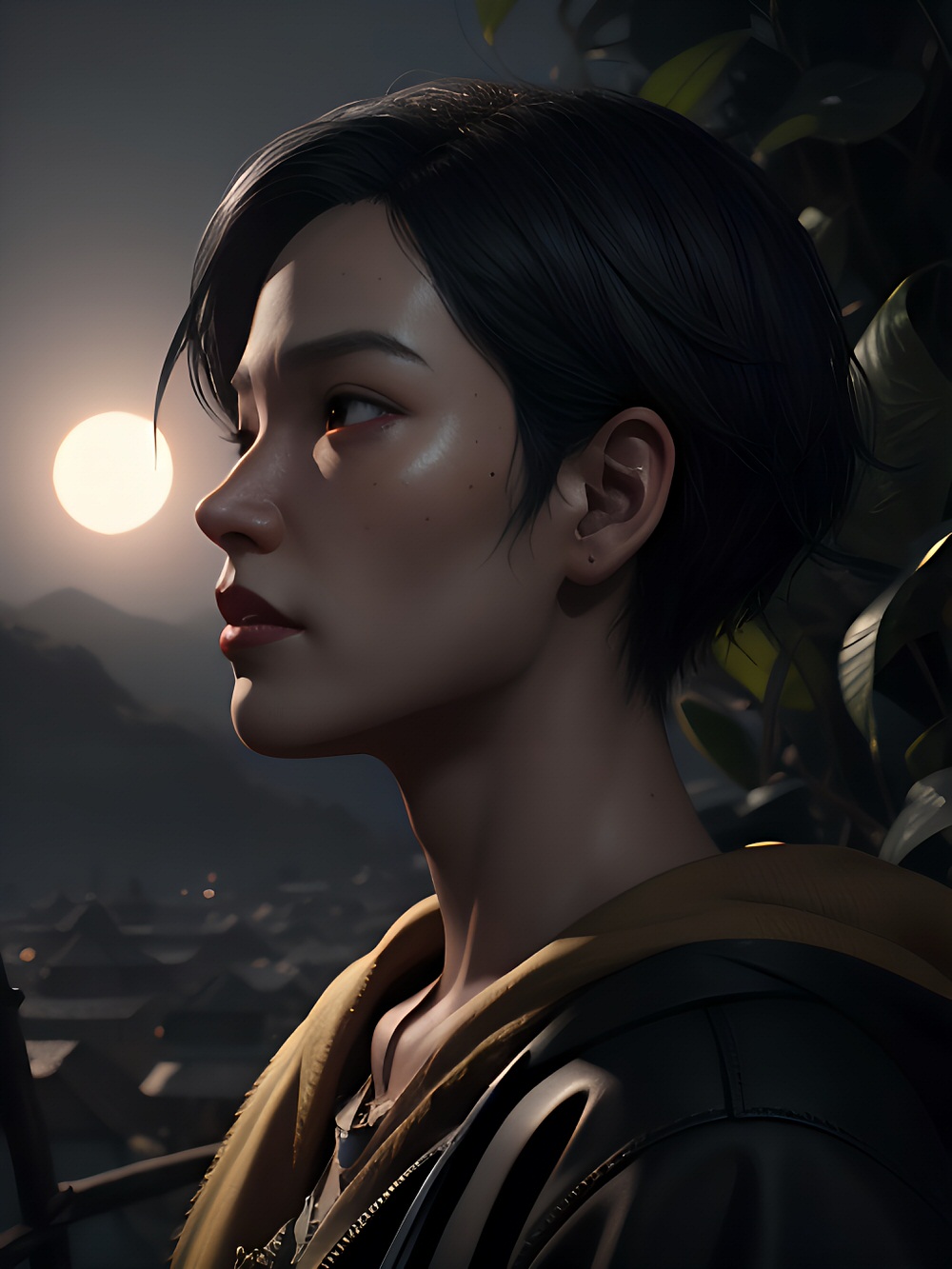
The use of force is a dangerous thing, always.
But sometimes, all else has failed.
That still is no justification.
It might be that all else has failed, and force will also fail. Sometimes there just is no solution. We have no right to use violence if it only makes things worse.
But sometimes, use of force can indeed help.
For instance, in those rare cases where someone snaps and threatens to attack others. Usually an instant crowd of citizens will form to hold anyone down who temporarily loses it. But if it takes more than that, the recoursors will move in to prevent harm, and to pave the way for the conciliators. Separate people first, talk later.
The recoursors can also come at the behest of the court of deliberators, when some folks just can’t let go of their conflict. When they have already blown the conciliation, and then don’t even respect the final say of the deliberators. Then the recoursors will come and make sure that cow is indeed returned, or that coin paid, or whatever it was the deliberators decided. And since we want that resolution to be permanent, it becomes obvious why the conciliators will be involved again. And indeed, why all recoursors constantly cultivate patience and listening together with physical strength.
Restitutionists
What has the world come to? the Restitutionists ask. Power has been wrested from princes, and ancient virtues forgotten.
But the spirit is still alive. Cherished like a small kindling flame, it is kept burning by old mages in secret covens. By all the faithful ones who, in whatever position they hold, seize every opportunity to save one small piece of the ousted order, to pave the way for a return of the Feudals.
One day, old times will be great again! Then should the warlike princes, like a rage, assume Vineehah’s guise, and at their heels, leashed in like hounds, should famine, sword and fire crouch for employment! May power lie where it belongs! For courage, truth and honor!
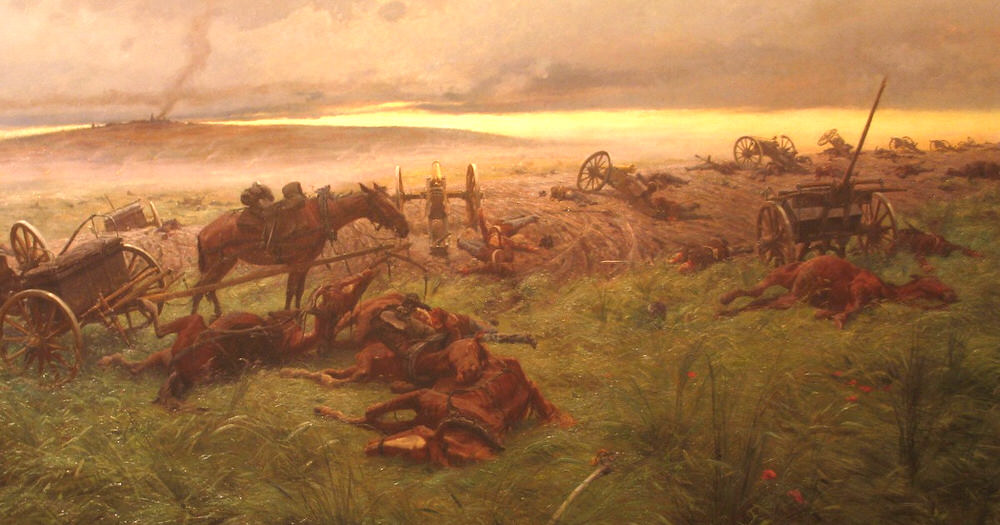
Scrutinizer
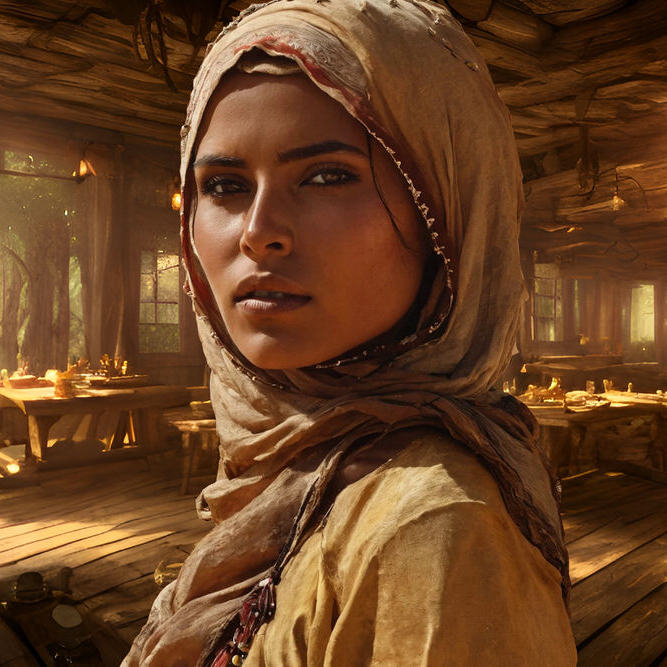
The Transitioners generally believe that people should self-organize. Since that is the most natural, most efficient and most satisfactory way to go.
However, rules and laws that are the same for all of Yurvania are also essential, creating the framework, setting general standards and repairing imbalances when they arise. And that is where the scrutinizers come in. Paying visits in every part of the country, they discern whether the regulations are working as they should. If, for instance, people really do have a free path and equal say in the various citizen tanglebraids and interlacings, in arbors or craft lodges. Also, if anything run by the county is run well. If, for example, all the learning pavilions truly are serving the children’s needs. Or if an intervention is needed. For even with the grandest theory, the reality of a society can still be a tricky thing . . .
Shebbetin
Who knew Shebbetin had grown so much? What used to be a few huddled huts in the highlands has become a full-flung mining town, filling the valley with the sounds of hammering and the hearty voices of people who will keep on singing together, whether it is love songs or laments or rallying cries…
What is it like to be a shinn? A fay being that has no permanent self, no steady, independent form of existence? How does it feel to become whatever the situation calls you to be, to embody the essence of one particular moment, of one tiny, fleeting juncture in an ever-changing universe?

Temples, Priests, Deities
Since it was the mages, not the priests, who upheld the power of the Feudals, the Transition has not touched the temples. People are free to worship as they choose. Which for some means not at all, or only rarely. For others it means often, or fervently. Some may beg a human-looking love-god to make the neighbor come and kiss. While others at the same temple believe that love is the essence of the universe and needs a quiet mind to be noticed.
People vary. Maybe so do deities.
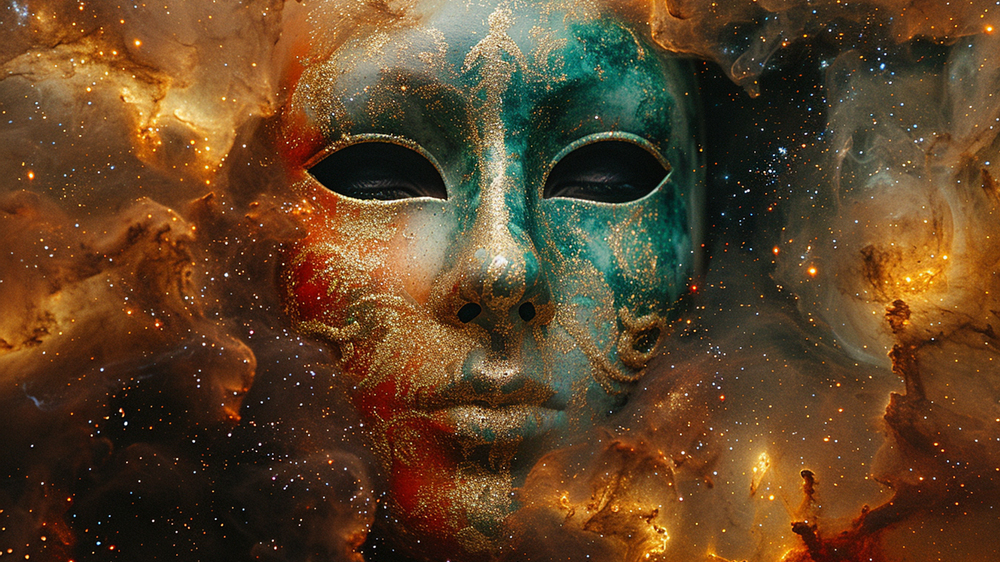
Terrene
That’s us. Anything of this earthly realm, anything not fay.

Toan
It’s much like Behrlem, really, only two days’ ride farther north. A pleasant country town full of blossoming vines, timber-framed houses and tilting roofs. And: Toan is where the pouch coaches for Varoonya leave, so you can travel all the way to the capital. Or get off at any stop along the road.
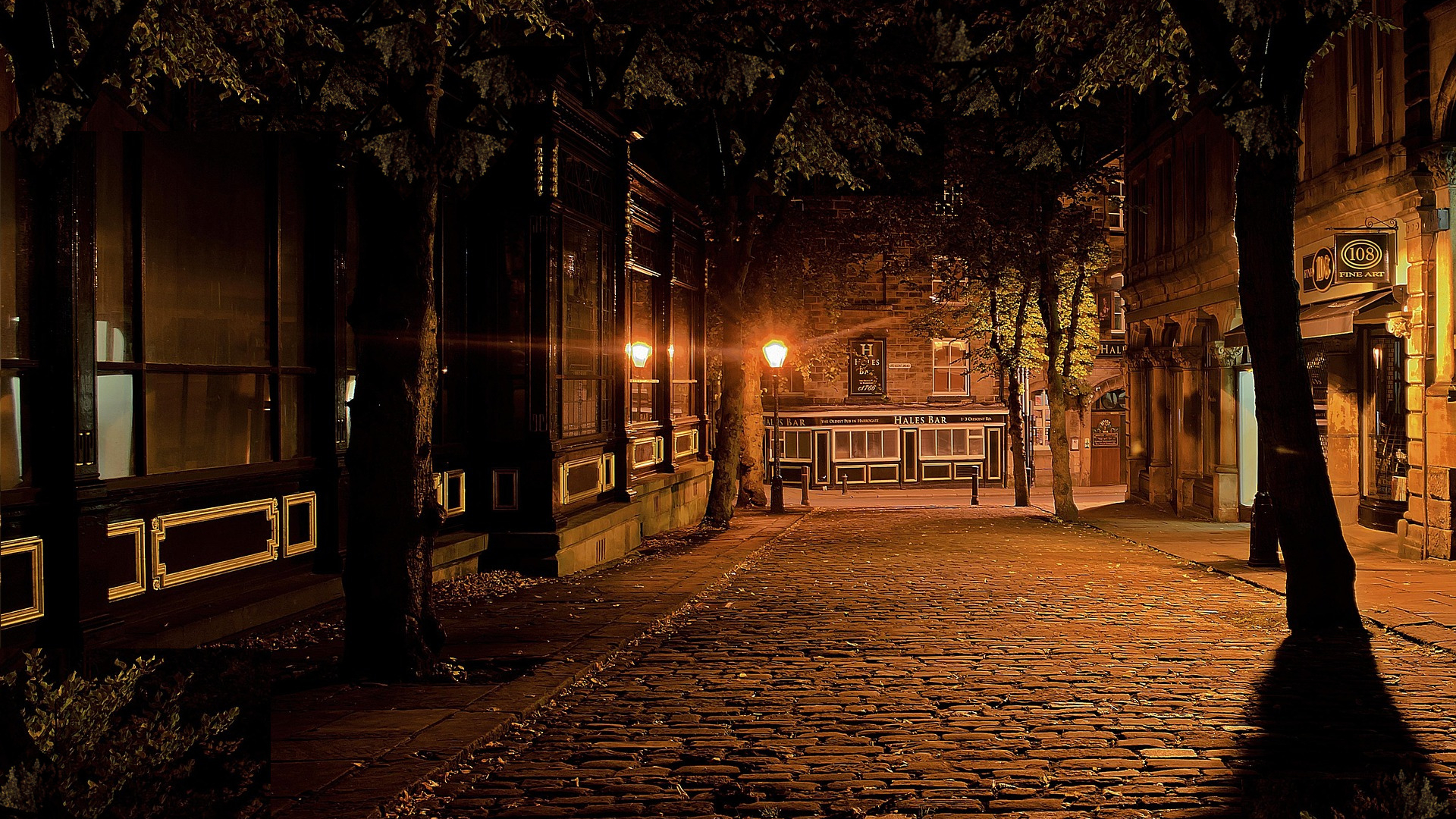
Transition
Some say the Transition was done in a day. Forty years ago, when the people were out in the streets and the soldiers refused to fight. When the ruling Feudals were driven into exile. That was the great turning point.
Yes, others say, but that really was just the moment a huge ocean wave came crashing ashore. The wave, and the Transition, had been building up for decades, if not centuries. With a new form of magic being invented. With traders who, in their far-flung but close-knit community, opened up communication across all different regions with their vows of peacefulness. There have been myriad gatherings and whispers, scrolls and declarations, relationships and confidences. A growing spirit of inquiry. Warehouses, farms and families, all trying to run along convivial principles.
Thousands of people, each with one small personal step, were living and spreading ideas of freedom and equality, of cooperation rather than war, of decisions taken by a community rather than orders given by overlords. It was the sum of all that by which the Transition has won, and is winning still. For it is not over yet: We need to go on working on our new Yurvania if we want it. To keep from sliding back, and to keep on moving forward.
The Transition is still happening every day, some say.
Believe as you choose.
Keep in touch with the Yurvanian Transition!
Trabarn, traption-barn
In the beginning it was just a barn. Just some free space where the artificers, being the young, enthusiastic magicians they are, set up their rickety traptions to see what they could do.
Turns out they could do pretty much anything.
Before long, traption-barns (or trabarns for short) sprang up in every other corner, producing horseshoes and carpets, lanterns and pastries, books and earrings. The artificers could not stop inventing and improving. And they could not stop opening new trabarns, fabricating a hundred pieces in the time it took to make just one. Replacing hard, arduous labor by magic. And, by the by, destroying the world of old craftsmanship.
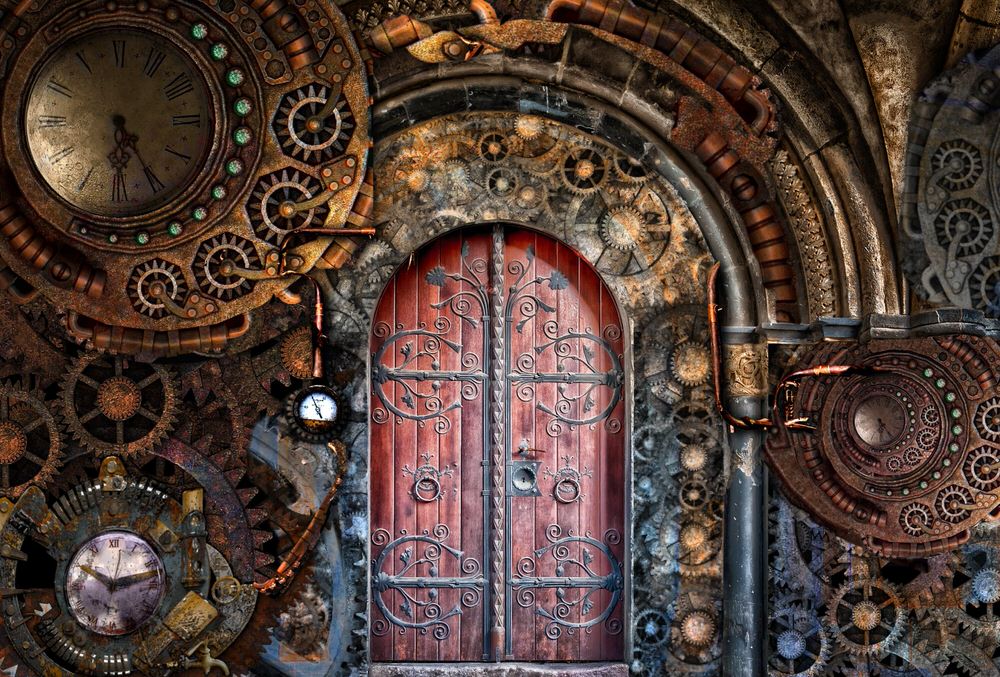
Traption
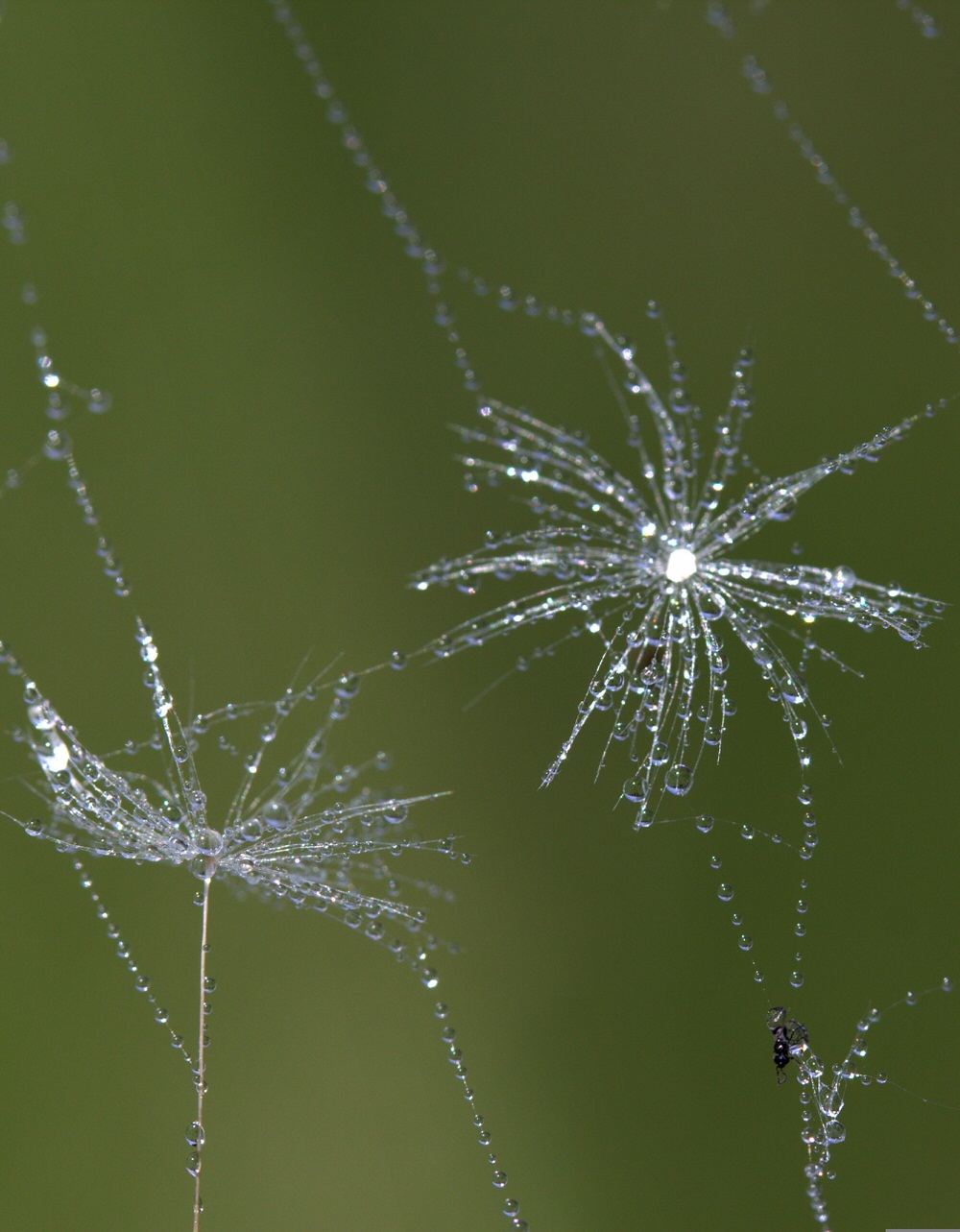
It doesn’t have to be in a wooden case. It just usually is. But really, a traption can be set up in any vessel able to protect a web of finely spun glass. Following a precise plan, these gossamer threads hold crystals full of spells, and one vim stone full of life force that has been extracted from plants for this very purpose.
Only magicians steeped in the art of creating traptions are able to bring forth such wonders of minute detail. And only they, the artificers, are able to set a traption alight, drawing golden lines of flame from a pentacle down into that glassy cloud.
But once that is done, almost anyone can use a traption. Just touch the right spot on the case, say the right word, and the invisible spark starts flowing inside. To let a magical lantern glow with a soft, golden sheen. Or to reach out to pegs and cogwheels, to a huge grunting apparatus that can lift heavy stone.
Traptions simply are the future, some say. Already they have liberated countless people from dangerous toil and brought the comforts of life to all. And they seem to be prolific, with new creations springing up all around all the time, their possible uses or consequences way beyond what anyone could possibly grasp or foretell. Least of all the Exactitudes at the academy who are charged with evaluation.
But someone really ought to check whether a new traption is safe to use, don’t you think? There have been accidents. There could be worse. But while the academy keeps adjourning, the artificers go on inventing traptions anyway. And using them, too. After all, where would we be if everyone had always waited for permission beforehand?
Vanian
There is nothing wrong with the old Yurvanian language. The words are innocent. Or are they? Maybe the old practices, the values of feudal times have seeped into their depths and will never truly leave again. Is it even possible to say a phrase and not invoke the ghost of the past, the vibes of contempt and oppression? So maybe we are right to abandon a language that will never fully express our ideals, never carry the ring of Transition. Or maybe we are fools to let our roots wither away instead of healing them.
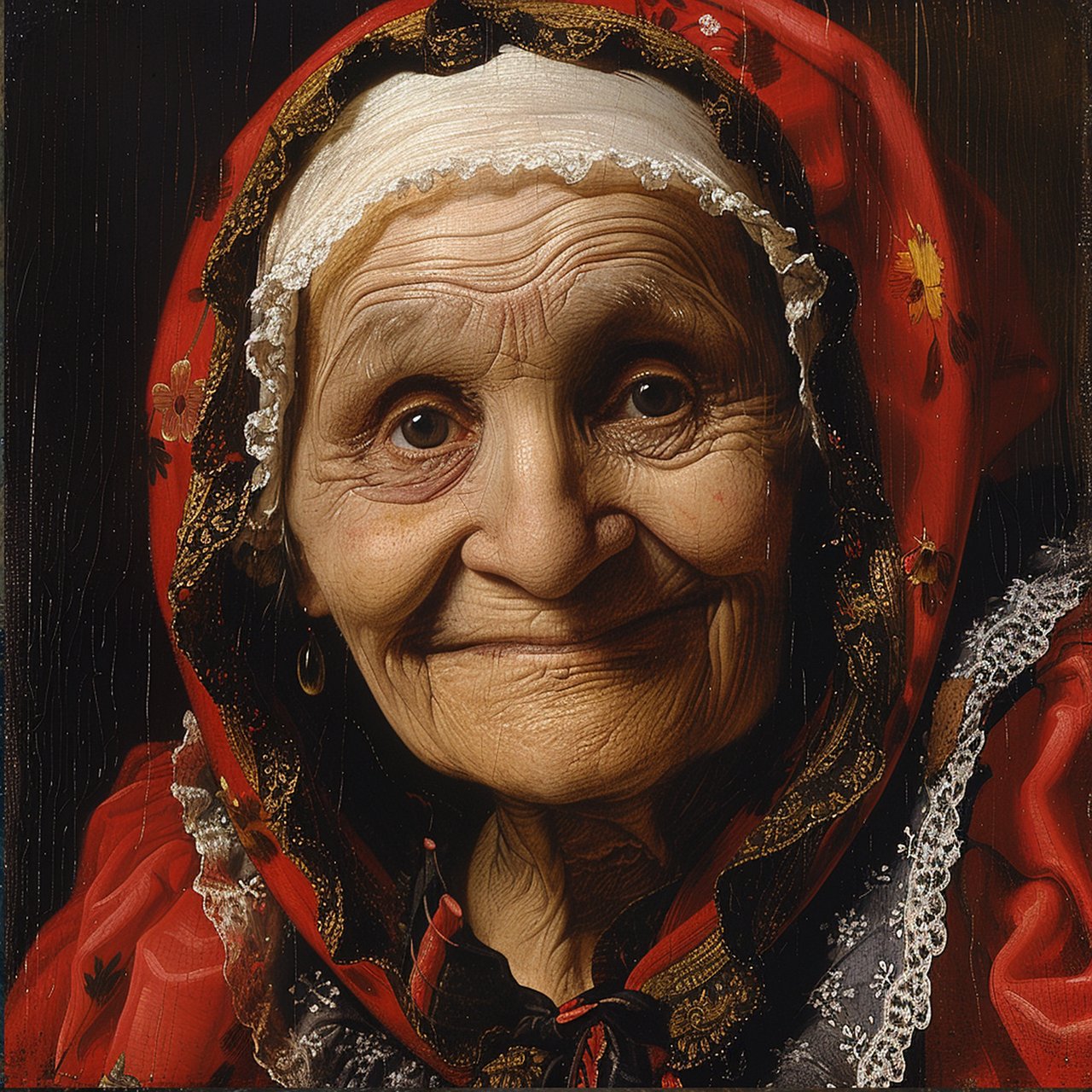
Varoonya
The bright and beautiful capital of Yurvania.
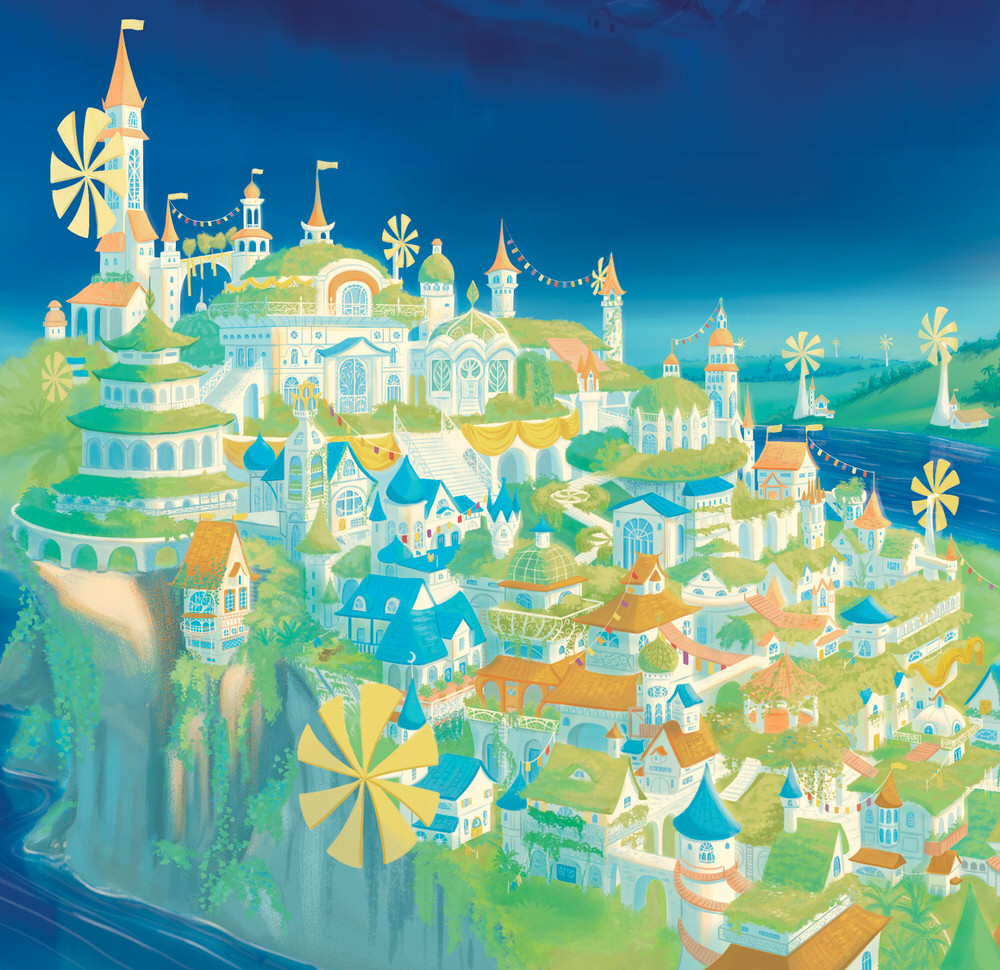
Vim
The force of life flows through all beings, making seeds crack open and young saplings stretch towards the sun.
Vim keeps us alive, and passes between beings whenever a wolf suckles her cubs, whenever a bee drinks from a flower. It passes when grass turns to antelope, or fish to bear, whenever one body dissolves into another, becoming the muscle and heartbeat, the passion and movement, the soul and essence of a very different animal.
While plants create vim from the rays of the sun, we animals can only take vim from other living beings. For eons, we have done so by eating, by having those others dissolve inside ourselves, by transforming them into us.
Only now have magicians veered off that path and come to extract vim in an ethereal form, distilled and disembodied. Keeping it not inside a breathing body, but in the clear, flawless symmetry of crystals, thus shedding the natural boundaries of their own flesh.
Just one oracle foretold the events they have set in motion by opening that door.

Yurvania
What shall I say? This is our country.
Shall I tell you of green fields and the glistening band of the Roon?
Of the people, the vibrant culture?
Of the Transition, the traptions, the rapids of change we seem to be swimming through?
Oh, I think I’ll just let you wander around and see for yourself . . .

Have you ever met a being who is infinitely cute and curious and alive and exasperating? That’s a wrollic. A love so light and beautiful it makes your heart melt, only to hear him laugh as he dances away.
Zonzelon
One of our sister countries in the Canopy of Jovaden. And of course, like all the others, in the age of the Feudals it was a rival kingdom, full of people we imagined to be really foreign . . .
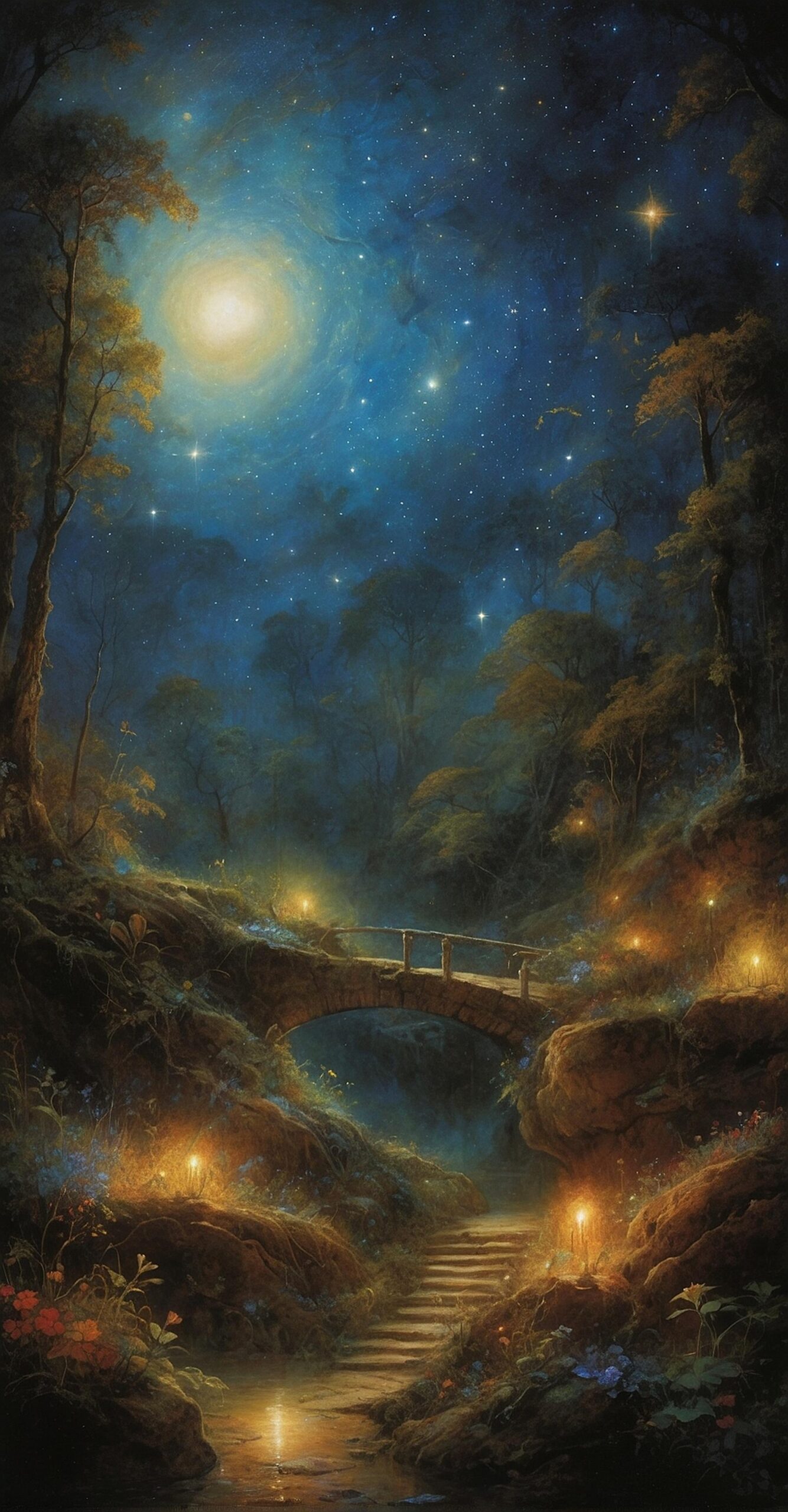
Welcome to Yurvania!
A Chitchat Background Glossary
Back in the olden days, before the Transition, the academy in Varoonya was the domain of traditional mages, their power inseparable from that of the ruling Feudals. But while the old mages were battling hellish demons, a few unknown commoners began forming their own secret covens, congregating in empty warehouses and private mansions. Drawing up pentacles so precise that not a grain of chalk was out of line. Exactitudes, these new magicians came to be called, and today they rule the academy.
Traditional mages were driven out on a fateful winter night, their rune-embroidered robes flapping in the storm as they fled across moonlit archways and vaulted galleries. Or so an oil painting in the academy’s library has it.
In any case, ever since the Transition, the craft of old mages and any belief in demons or fay has been decried as delusion, a vile means of manipulation and oppression. Erasing intuition, dreams and drama from the practice of magic, the Exactitudes have turned the academy into a temple of punctilious arrangement and purity of procedure.
Even though the Exactitudes have always been more concerned with being precise than with being useful, they have still ended up making huge contributions to society. They have become a major force of the Transition. They have given potions a healing power none have ever had before. And, of course, they have invented the principle of extracting vim from plants. A feat that has come back to haunt them, for it has brought about the invention of traptions, and the rise of artificers.


Artificers are educated at the Academy of Magical Arts. In theory, you might say. For theory is the one thing the academy does indeed teach. But the building of actual traptions, which exist only to meet everyday needs, seems to be beneath its dignity.
So anything that is hot and interesting, or indeed relevant and necessary, is best picked up elsewhere, the artificers feel. And delve into their own dens, crammed with workbenches full of glass, crystals, and a disorderly flurry of scribblings and intricate drawings. Eyes gleaming, they lean over each other’s shoulders, adding another spell here, tweaking an invisible thread there until—whoa, another traption is born! And working! Doing completely new things! Do you want to see?
They’ll show you, don’t worry. They simply can’t help it.

What’s not to love about Behrlem?
Anyone who says it’s a boring country town, just a petty provincial capital, probably hasn’t even been there.
Yes, Behrlem may be quiet and cozy, with lots of picturesque old houses surrounded by green fields, but it is also lively in its own way. Convivial. Full of people who can handle conflicts with neighbors, who sing any time of the day without warning, and who are keenly interested in developing their own crafts and spirits. Come visit! If you ever happen to be that far south: Go and see for yourself!

Get in Touch
Hi there! I’m happy to hear from you – whether it is about your reader’s journey,
a speaker request or just a friendly hello! Do drop me a line!
No one knows why butterfly people exist. They just happen to pop up every now and then, a big and beautiful surprise to their parents, who suddenly find themselves holding a shimmering baby of green and gold, or teal and indigo. It may be the heirloom of some long-forgotten ancestor. Or it may be the kiss of a fay. Who knows.
Butterflies are rare, and readily admired. But they have never been known for a particular skill or profession, a temperament or a walk of life. They have been people, much like everyone else. Only gifted with a velvety skin of rich, shifting hues, a body bathed in the sheen of unearthly beauty.
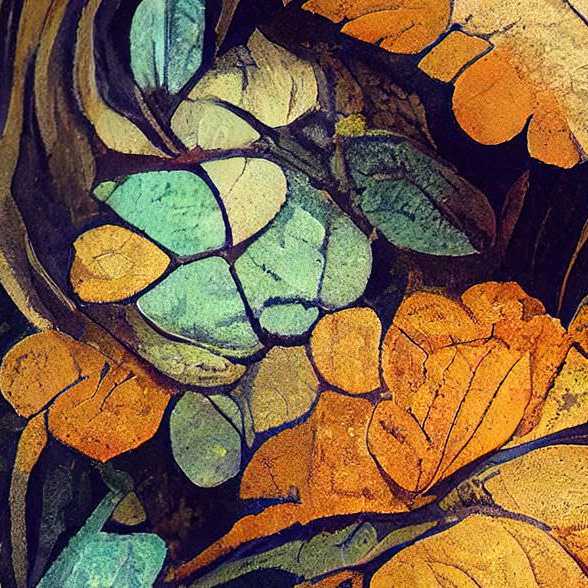
We used to think that we were all very different, you know, Yurvania from Zonzelon, Zonzelon from Henora, and that difference inevitably meant enmity. Or that the kingdom needed to be defended. How silly. Today, we feel that naturally, people in all countries are ‘we’. We are humankind, together. And people within each country or even each town have differences among themselves.
No doubt establishing the Canopy as a formal union between the countries of Jovaden has helped a great deal with that shift in understanding. We have put an end to war, and that is what matters most.
The rest is devilish detail. Or indeed, it is precisely what you should have when responsibly navigating a complex world: endless negotiation.

Not everyone always gets along within a society. Sometimes bad things happen. Then what?
Ever since the Transition, Yurvania has employed conciliators in every region. Conciliators spread skills, helping people to develop their ability to listen, discern, and handle their own conflicts—the cornerstone of a competent society, according to Transition beliefs.
But conciliators also host talks directly whenever things get out of hand. Careful and experienced, the conciliators move into the conflict zone to create a space where people can feel safe enough to breathe and to begin exploring the pain in a way that does not stop at, say, the physical damage done to a home, but goes beyond to see the hurt feelings, too. And maybe even uncovers any structural problems that may be more about the society than about the two people fighting. Bringing in whoever may be helpful from the larger community, the conciliators are there to hold space for people to find their own solution within the broad frame of the law. A conclusion that means it won’t happen again. One that repairs harm done. And one that restores relationships at least up to the point where everyone involved feels they can get on with their lives again.

It’s not just that the Council is chosen by all the people of Yurvania, but otherwise it continues what the governing chamber of the Feudals used to do. No. The Council works in a completely new spirit. For the benefit of all people rather than just a few, so of course the aim is very different. But also the ways in which they go about it. Council members will not fight, pushing their own views and trying to force or manipulate everyone else along. Instead they practice deep listening, aiming to sense the emerging picture together. Like all of us, they see their own view as only one piece of a puzzle, longing to be complemented by others. And of course that is just how Council members approach the population as a whole: listening to all these different voices, trying to glean from that cacophony of partial wisdoms how it can all come together. They attune to feel into the flow of the world, to sense the emerging form of the future that longs to be.
At least that is how they are supposed to do it. I don’t know if they always make it. They are just people, after all.

Quiet and reticent, their dry, angular branches full of thorny needles, the deewelarque bushes are sentinels on the threshold to the realm of fay—some people say. Those who bow in respect to these ancient natives of Yurvania. Those who believe the lush black berries can give visions of the otherworld.
Just hallucinations, other people say. But even those agree that deewelarque berries can make for extremely potent potions. Or, without the right kind of skill, for lethal poison.

Sometimes, people can’t handle their own disagreements, even with the help of conciliators. If that happens, a court of deliberation will hear all sides and then come up with a final say that all parties have to abide by, even if they do not endorse it. Fortunately, most often people find a solution themselves before it gets to this.
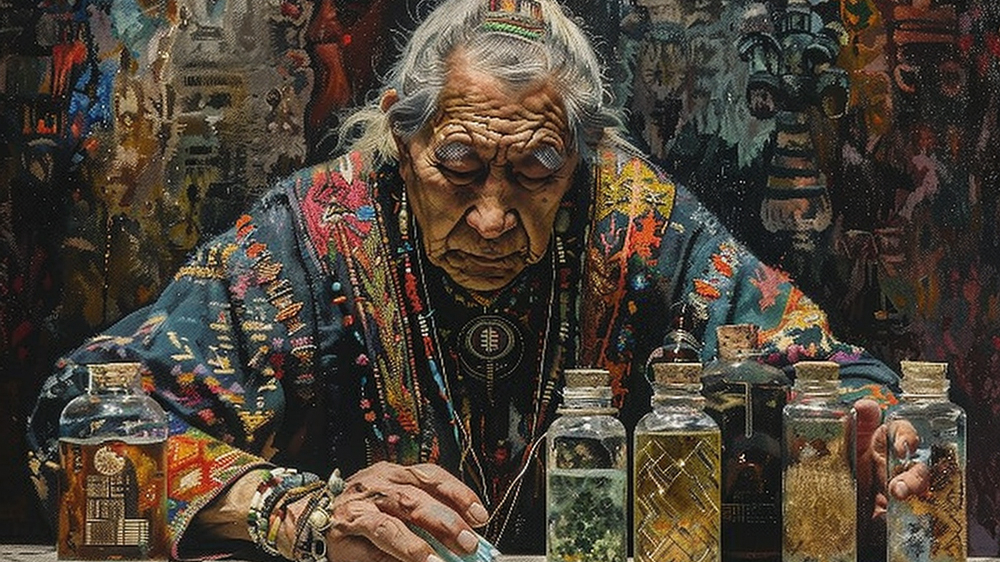
Stern and warlike, its strong towers full of battlements, the ancient castle will perhaps remain forever. But the garrison and the cadet school within are dwindling and fading in the wake of the Transition. Gone are the days when Diamondtip, the greatest garrison in Yurvania, had the power to dominate the whole south. Old times will never return. Or will they?

It’s funny that the old nickname is still around, isn’t it?
After all, ever since the Transition, the Exactitudes have been so dominant at the academy that they see themselves as the only kind of magician there is, or possibly could be. The Exactitudes now hold the power to define what is accepted as truth in Yurvanian society. Mostly, anyway.
So anyone who believes that the old mages did indeed banish demons, or that the fay world is real, or that traptions are the future, will be subjected to snorts and raised eyebrows at the very least. The Exactitudes have no doubt about their own truth, or their own importance.
But then again. Just to be sure, just to remind everyone that the old mages have been ousted by their betters and that artificers are just tinkerers . . . Isn’t it worthwhile to stick with the old nickname? Just to make it clear to everyone what true magic is, and who is its keeper?
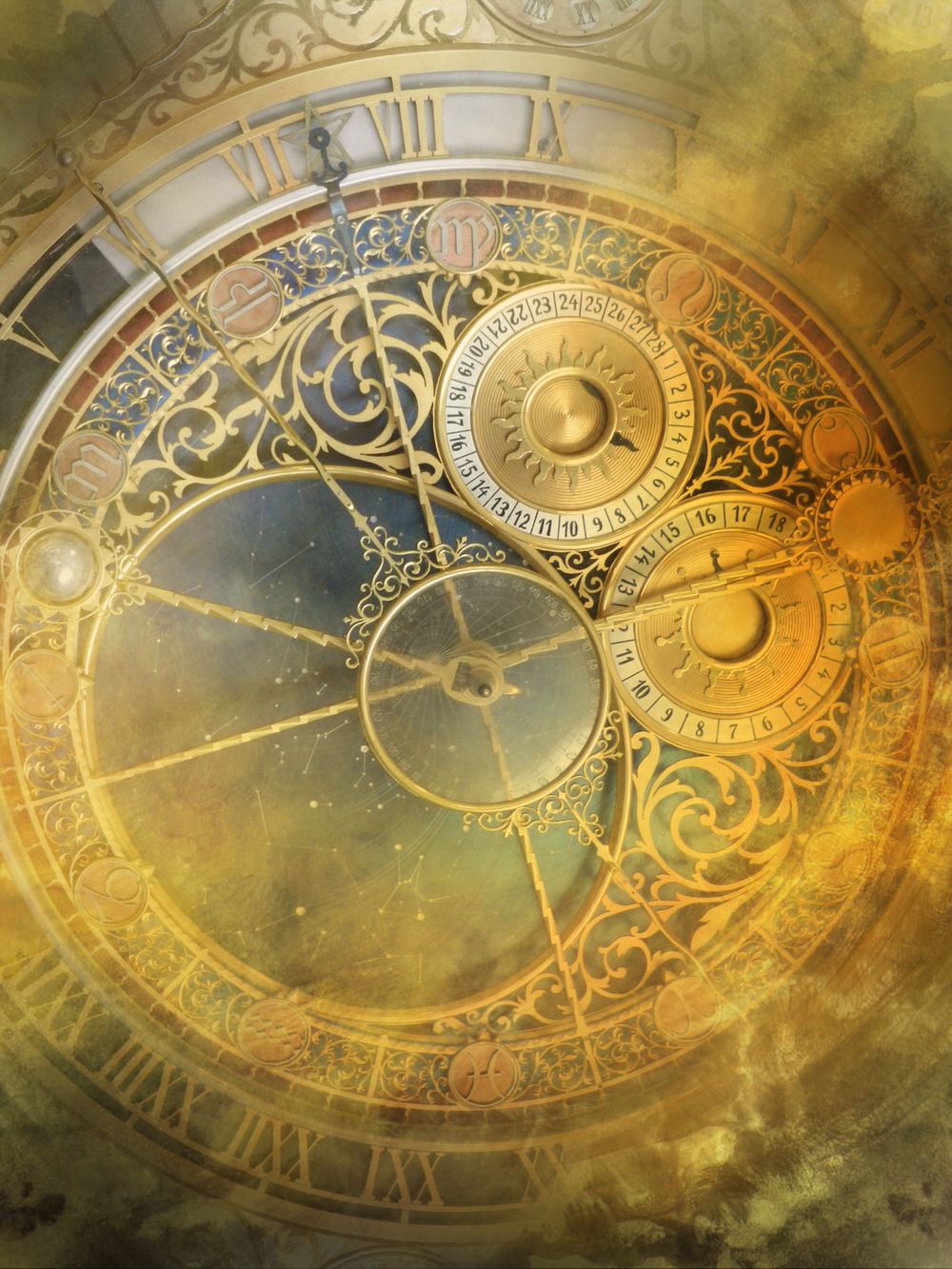
Do they exist? Do they not?
In all of living memory, the people of Yurvania have taken the presence of the fay for granted. Even if no one really knew who they were. But some may have glimpsed a selkie or a wraith, and for sure everybody had seen the demons that came to do terrible battle with the mages.
But ever since the Transition, all of that is gone. We know now that those so-called demons were only illusions, conjured up to make people afraid and, once afraid, easy to hold down. Quite right the Transition ousted the mages! And any belief in demons or fay along with them.
So that is the official creed in Yurvania now, the kind of thing you are supposed to say in public.
But of course, actual beliefs within a society are always more varied than that. In Yurvania, too. Not only do we have the last of the old mages and their followers, but there also are, and probably always have been, people who hope that the fay realm may mean more than just monsters. That, perhaps, it is also home to unicorns. To nymphs and fauns and flower fairies, ghosts and spirits, mermen and shape shifters. A world rich and strange, of humans turning into trees and pearls birthing sea gods. Of stars opening portals and winds whispering to lovers. A world, eldritch and alien, wonderful and mysterious, invisible and ever distant, yet always intertwined, always one with ours.
Willing to wonder about the fay of Yurvania?
Now, those! You know them. People who claimed to own the land and even the people. Who thought that killing was honorable and killing thousands was heroic.
Yes, you may well sigh and shake your head. Be glad those days are over, and the horrors they brought, too! The Exit of the Feudals was indeed the glorious peak of the Transition, that fateful day forty years ago when the Feudals were driven into exile.
It was the dawn of a new era, and a new society. Of people living together as equals, free from oppression, ready to find a good life for all. No one today is ducking under another’s command. No one would flaunt their riches while the babies are starving.
And yet. The reign of Feudals has lasted so long, gone in so deep. It has nestled into the nooks and crannies of our culture, made its home in our souls. The traces are still there, even in our dreams. And we can only ease them out slowly, one by one . . .

You could say that Hebenir is on the edge of the world, even though it is not that far away, just two days’ ride from Toan after all, and two hours from Behrlem. But it is the last village that huddles into the steep slope on this side on the mountains. Behind it, only a narrow path winds up to the pass, and leads on into an unknown realm of vast, ancient highlands.

That’s the world.
All right: It’s our continent.
Well, all the parts of the continent that really matter, you might say. The broad and beautiful basin of the Roon River, holding Yurvania, Zonzelon, and all the other countries now united under the Canopy.
It is our home. And our horizon, too, I have to admit.
Beyond that, there be dragons . . .
Although within the Canopy of Jovaden, Yurvania still gets more glimpses of the outside world than most, I wager. Even if few have ever wondered what might lie beyond those steep mountains to the east. But a few local boatspeople are able to navigate the way south, where the Roon turns into a delta of endless swamps and mangrove forests before meeting the sea. They come back with stories of large ships and ocean waves, with silky cloth and strange artifacts, and most importantly, with thoughts and seeds.
Who knows what flowers those will grow into, and how they will change our lands?

You mean the language, right? It has been brought in by the Kokish people. Even though I have heard that they also got it from elsewhere, those eternal traders. Anyway, Kokish turned into the language of merchants and a bridge between all the regional tongues. Together with the Kokish commitment to peace and to learning it became the medium of a new philosophy too, a new way of being in the world. And eventually the Transition has adopted it as its own, so that for the last forty years everyone here has grown up speaking Kokish, and old tongues like Vanian are slowly fading away.

Since times immemorial, monsters and demons have haunted Yurvania, and mages were their masters. In thunderous battles that made the sky tremble, mages shackled dragon-winged fiends and struck lightening into their fiery hearts.
But the mages fell.
Not to the demons, but to the Transition, which ousted them together with the ruling Feudals. Having served faithfully for so long, many mages were not ready to give up the power of sword and staff. Which is why the Transitioners sent them into exile, to live under guard, just like the Feudals. All those who remained were driven out of palace and academy in disgrace. They found themselves facing a new society, one that believes demons do not even exist. And that all monsters were illusions, conjured up only to scare people into submission.
Some old mages have adapted.
Some appear to have adapted, but go on practicing their craft in obscurity.
And some have formed secret covens, initiating new apprentices, forging alliances. Preparing for the day to come, when old times will be great again!
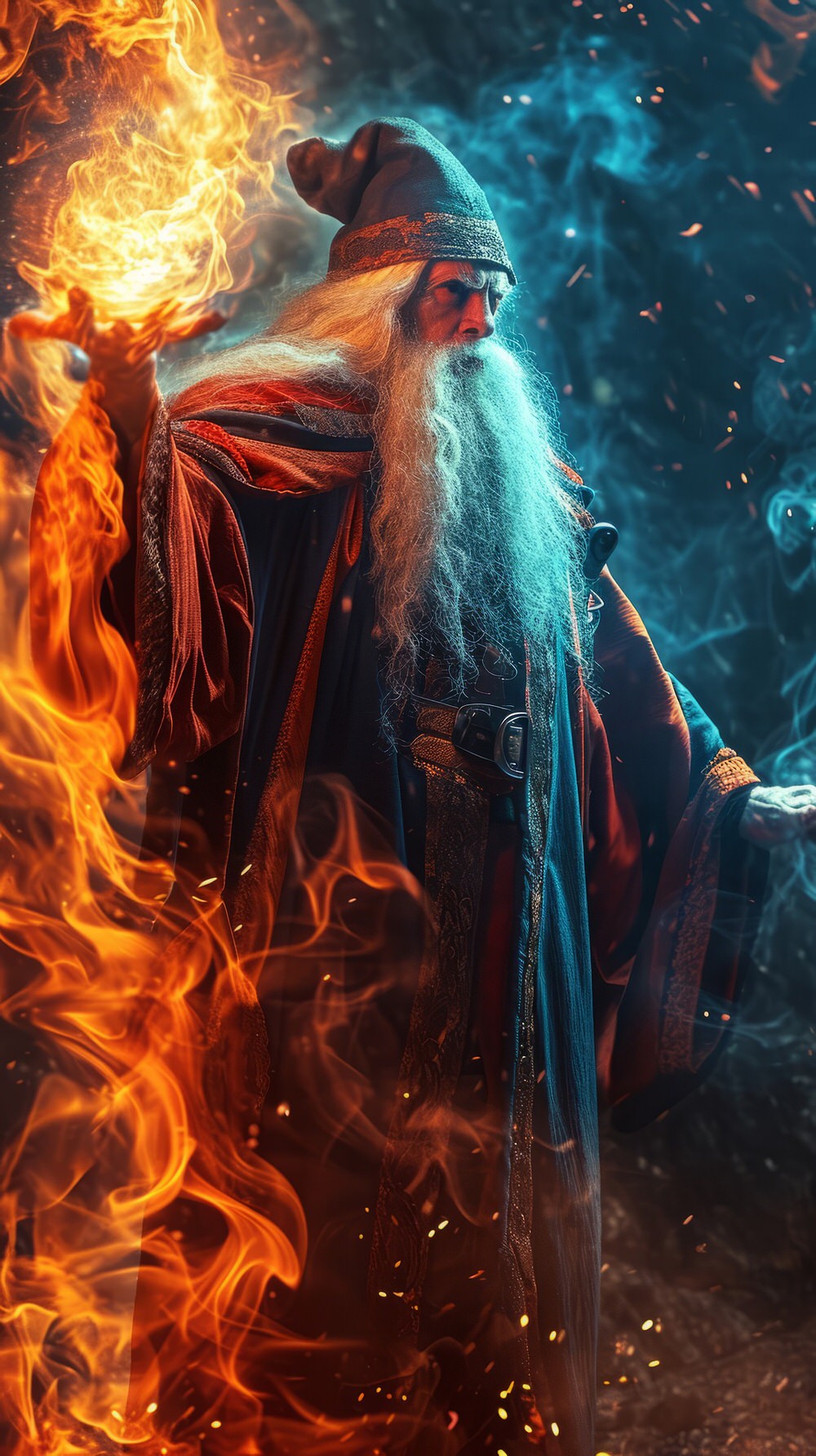
A fay being that Lahoon dreamed up for his song.

You’ve never heard anything more enchanting than the faint song of a nightling, her pure glass bell chime, while her black outline circles beneath the stars. A nightling will seem like the first bird to you, like the eternal dragon, and take your breath away with her air of quiet freedom. But when trapped, of course, she turns into a nightmare.

The use of force is a dangerous thing, always.
But sometimes, all else has failed.
That still is no justification.
It might be that all else has failed, and force will also fail. Sometimes there just is no solution. We have no right to use violence if it only makes things worse.
But sometimes, use of force can indeed help.
For instance, in those rare cases where someone snaps and threatens to attack others. Usually an instant crowd of citizens will form to hold anyone down who temporarily loses it. But if it takes more than that, the recoursors will move in to prevent harm, and to pave the way for the conciliators. Separate people first, talk later.
The recoursors can also come at the behest of the court of deliberators, when some folks just can’t let go of their conflict. When they have already blown the conciliation, and then don’t even respect the final say of the deliberators. Then the recoursors will come and make sure that cow is indeed returned, or that coin paid, or whatever it was the deliberators decided. And since we want that resolution to be permanent, it becomes obvious why the conciliators will be involved again. And indeed, why all recoursors constantly cultivate patience and listening together with physical strength.

What has the world come to? the Restitutionists ask. Power has been wrested from princes, and ancient virtues forgotten.
But the spirit is still alive. Cherished like a small kindling flame, it is kept burning by old mages in secret covens. By all the faithful ones who, in whatever position they hold, seize every opportunity to save one small piece of the ousted order, to pave the way for a return of the Feudals.
One day, old times will be great again! Then should the warlike princes, like a rage, assume Vineehah’s guise, and at their heels, leashed in like hounds, should famine, sword and fire crouch for employment! May power lie where it belongs! For courage, truth and honor!

The Transitioners generally believe that people should self-organize. Since that is the most natural, most efficient and most satisfactory way to go.
However, rules and laws that are the same for all of Yurvania are also essential, creating the framework, setting general standards and repairing imbalances when they arise. And that is where the scrutinizers come in. Paying visits in every part of the country, they discern whether the regulations are working as they should. If, for instance, people really do have a free path and equal say in the various citizen tanglebraids and interlacings, in arbors or craft lodges. Also, if anything run by the county is run well. If, for example, all the learning pavilions truly are serving the children’s needs. Or if an intervention is needed. For even with the grandest theory, the reality of a society can still be a tricky thing . . .
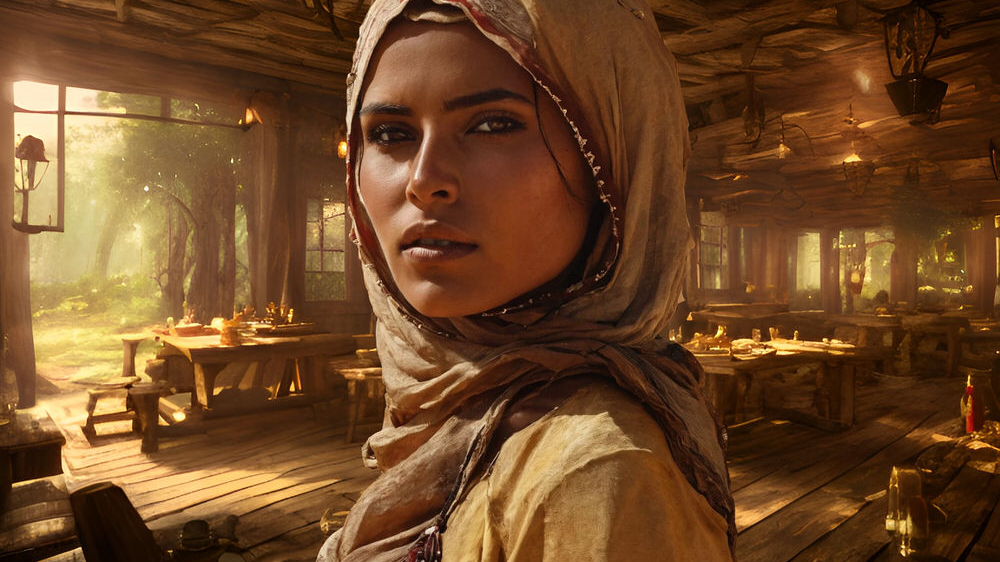
Who knew Shebbetin had grown so much? What used to be a few huddled huts in the highlands has become a full-flung mining town, filling the valley with the sounds of hammering and the hearty voices of people who will keep on singing together, whether it is love songs or laments or rallying cries…
Read Shebbetin’s story
What is it like to be a shinn? A fay being that has no permanent self, no steady, independent form of existence? How does it feel to become whatever the situation calls you to be, to embody the essence of one particular moment, of one tiny, fleeting juncture in an ever-changing universe?

Since it was the mages, not the priests, who upheld the power of the Feudals, the Transition has not touched the temples. People are free to worship as they choose. Which for some means not at all, or only rarely. For others it means often, or fervently. Some may beg a human-looking love-god to make the neighbor come and kiss. While others at the same temple believe that love is the essence of the universe and needs a quiet mind to be noticed.
People vary. Maybe so do deities.

That’s us. Anything of this earthly realm, anything not fay.

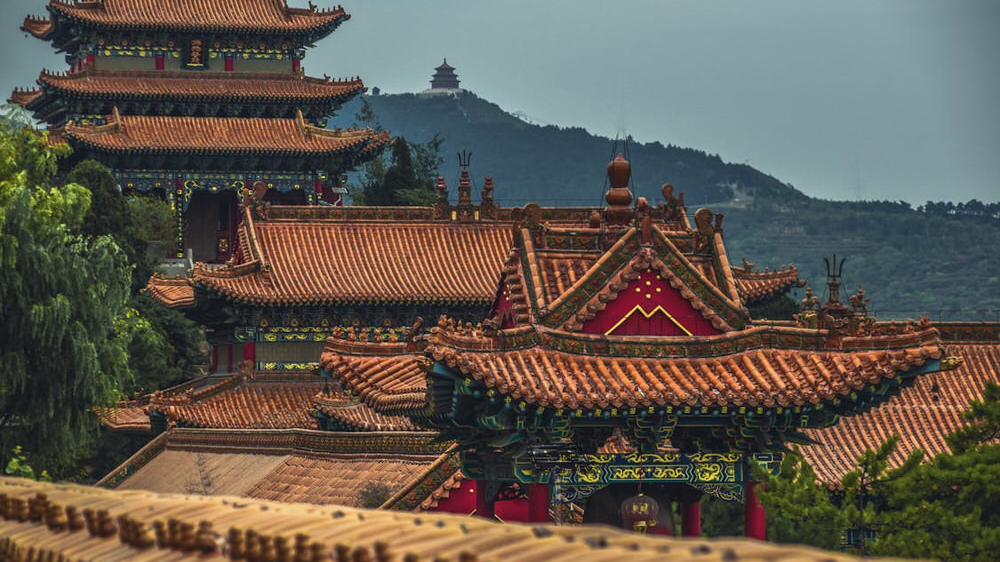
It’s much like Behrlem, really, only two days’ ride farther north. A pleasant country town full of blossoming vines, timber-framed houses and tilting roofs. And: Toan is where the pouch coaches for Varoonya leave, so you can travel all the way to the capital. Or get off at any stop along the road.
Some say the Transition was done in a day. Forty years ago, when the people were out in the streets and the soldiers refused to fight. When the ruling Feudals were driven into exile. That was the great turning point.
Yes, others say, but that really was just the moment a huge ocean wave came crashing ashore. The wave, and the Transition, had been building up for decades, if not centuries. With a new form of magic being invented. With traders who, in their far-flung but close-knit community, opened up communication across all different regions with their vows of peacefulness. There have been myriad gatherings and whispers, scrolls and declarations, relationships and confidences. A growing spirit of inquiry. Warehouses, farms and families, all trying to run along convivial principles.
Thousands of people, each with one small personal step, were living and spreading ideas of freedom and equality, of cooperation rather than war, of decisions taken by a community rather than orders given by overlords. It was the sum of all that by which the Transition has won, and is winning still. For it is not over yet: We need to go on working on our new Yurvania if we want it. To keep from sliding back, and to keep on moving forward.
The Transition is still happening every day, some say.
Believe as you choose.
Keep in touch with the Yurvanian Transition!
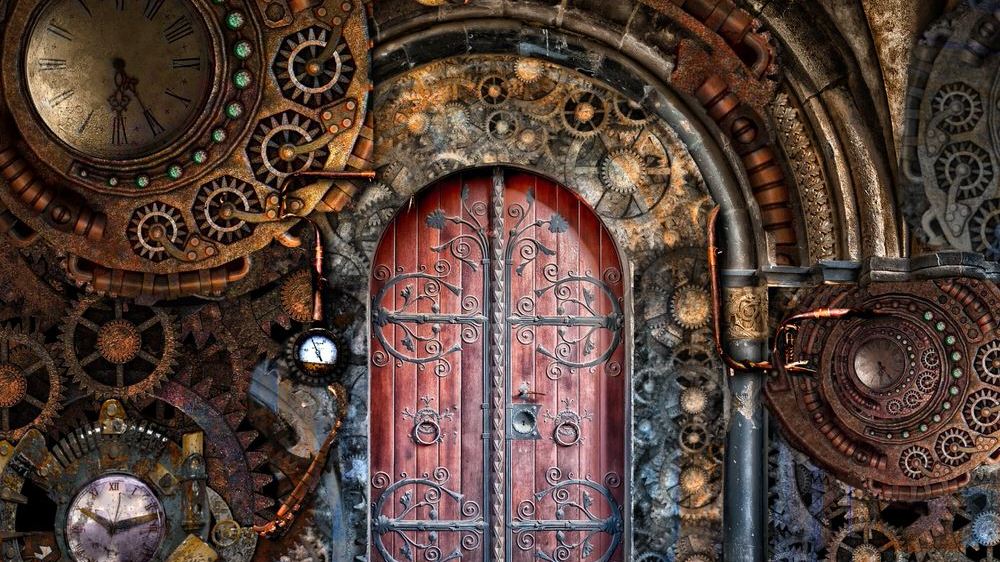
In the beginning it was just a barn. Just some free space where the artificers, being the young, enthusiastic magicians they are, set up their rickety traptions to see what they could do.
Turns out they could do pretty much anything.
Before long, traption-barns (or trabarns for short) sprang up in every other corner, producing horseshoes and carpets, lanterns and pastries, books and earrings. The artificers could not stop inventing and improving. And they could not stop opening new trabarns, fabricating a hundred pieces in the time it took to make just one. Replacing hard, arduous labor by magic. And, by the by, destroying the world of old craftsmanship.
It doesn’t have to be in a wooden case. It just usually is. But really, a traption can be set up in any vessel able to protect a web of finely spun glass. Following a precise plan, these gossamer threads hold crystals full of spells, and one vim stone full of life force that has been extracted from plants for this very purpose.
Only magicians steeped in the art of creating traptions are able to bring forth such wonders of minute detail. And only they, the artificers, are able to set a traption alight, drawing golden lines of flame from a pentacle down into that glassy cloud.
But once that is done, almost anyone can use a traption. Just touch the right spot on the case, say the right word, and the invisible spark starts flowing inside. To let a magical lantern glow with a soft, golden sheen. Or to reach out to pegs and cogwheels, to a huge grunting apparatus that can lift heavy stone.
Traptions simply are the future, some say. Already they have liberated countless people from dangerous toil and brought the comforts of life to all. And they seem to be prolific, with new creations springing up all around all the time, their possible uses or consequences way beyond what anyone could possibly grasp or foretell. Least of all the Exactitudes at the academy who are charged with evaluation.
But someone really ought to check whether a new traption is safe to use, don’t you think? There have been accidents. There could be worse. But while the academy keeps adjourning, the artificers go on inventing traptions anyway. And using them, too. After all, where would we be if everyone had always waited for permission beforehand?

There is nothing wrong with the old Yurvanian language. The words are innocent. Or are they? Maybe the old practices, the values of feudal times have seeped into their depths and will never truly leave again. Is it even possible to say a phrase and not invoke the ghost of the past, the vibes of contempt and oppression? So maybe we are right to abandon a language that will never fully express our ideals, never carry the ring of Transition. Or maybe we are fools to let our roots wither away instead of healing them.

The bright and beautiful capital of Yurvania.
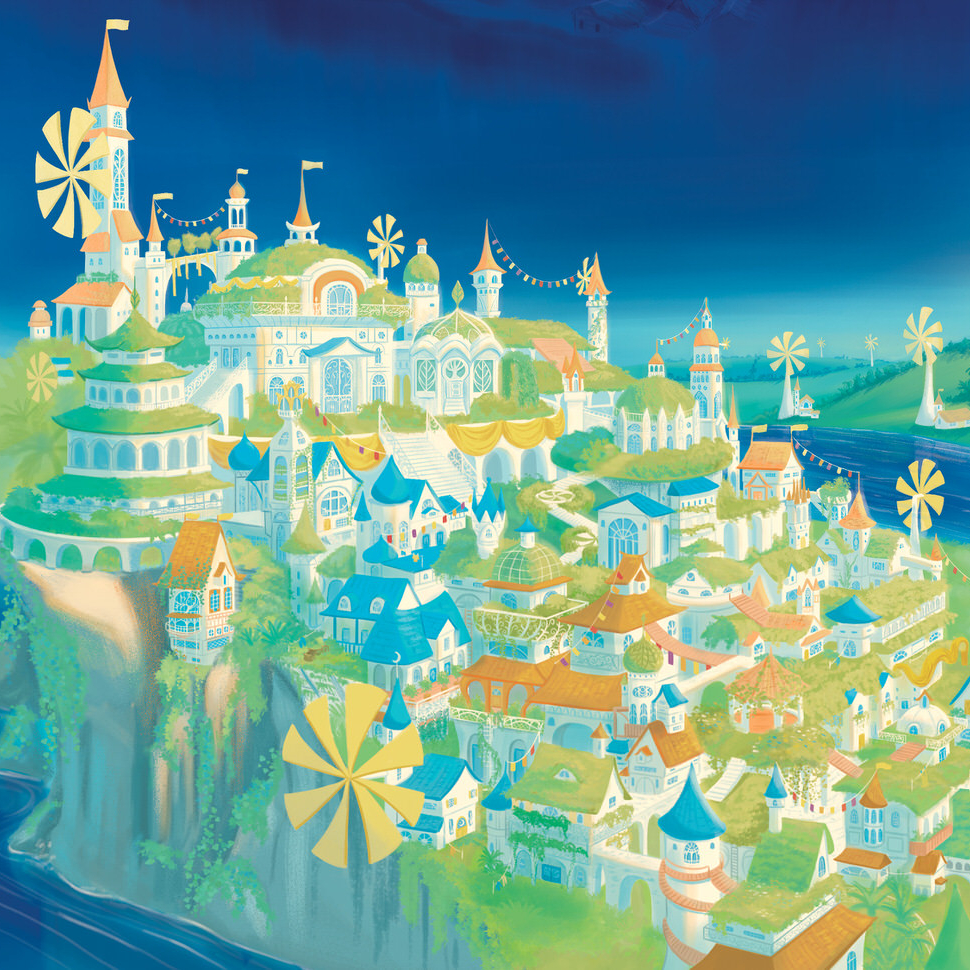

The force of life flows through all beings, making seeds crack open and young saplings stretch towards the sun.
Vim keeps us alive, and passes between beings whenever a wolf suckles her cubs, whenever a bee drinks from a flower. It passes when grass turns to antelope, or fish to bear, whenever one body dissolves into another, becoming the muscle and heartbeat, the passion and movement, the soul and essence of a very different animal.
While plants create vim from the rays of the sun, we animals can only take vim from other living beings. For eons, we have done so by eating, by having those others dissolve inside ourselves, by transforming them into us.
Only now have magicians veered off that path and come to extract vim in an ethereal form, distilled and disembodied. Keeping it not inside a breathing body, but in the clear, flawless symmetry of crystals, thus shedding the natural boundaries of their own flesh.
Just one oracle foretold the events they have set in motion by opening that door.
What shall I say? This is our country.
Shall I tell you of green fields and the glistening band of the Roon?
Of the people, the vibrant culture?
Of the Transition, the traptions, the rapids of change we seem to be swimming through?
Oh, I think I’ll just let you wander around and see for yourself . . .
Yurvanian Transition Novels:
Have you ever met a being who is infinitely cute and curious and alive and exasperating? That’s a wrollic. A love so light and beautiful it makes your heart melt, only to hear him laugh as he dances away.

One of our sister countries in the Canopy of Jovaden. And of course, like all the others, in the age of the Feudals it was a rival kingdom, full of people we imagined to be really foreign . . .

Join the Newsletter
and receive
a free bonus story
news of books from Yurvania
background yarns linking the Transition of our two worlds
Join the Newsletter
and receive
a free bonus story
news of books from Yurvania
background yarns linking the Transition of our two worlds
